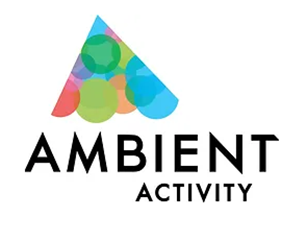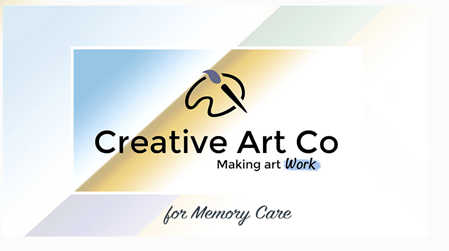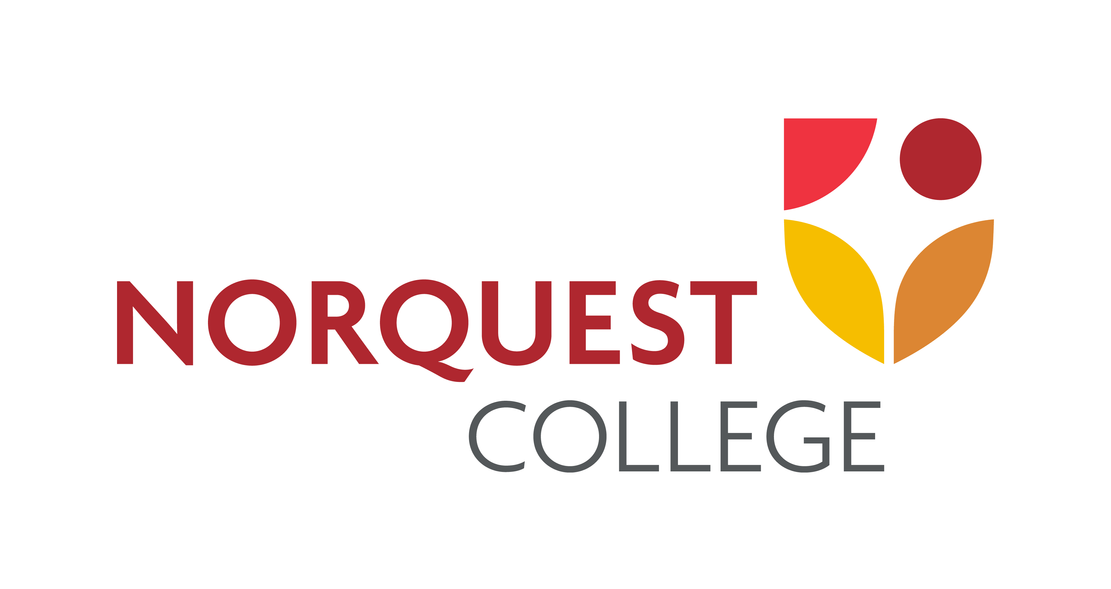
A note: This program is up to date as of May 8

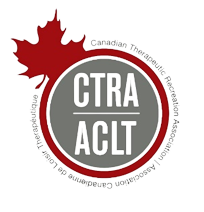
CTRA Annual Conference
Conference Program
May 10 - 12, 2023
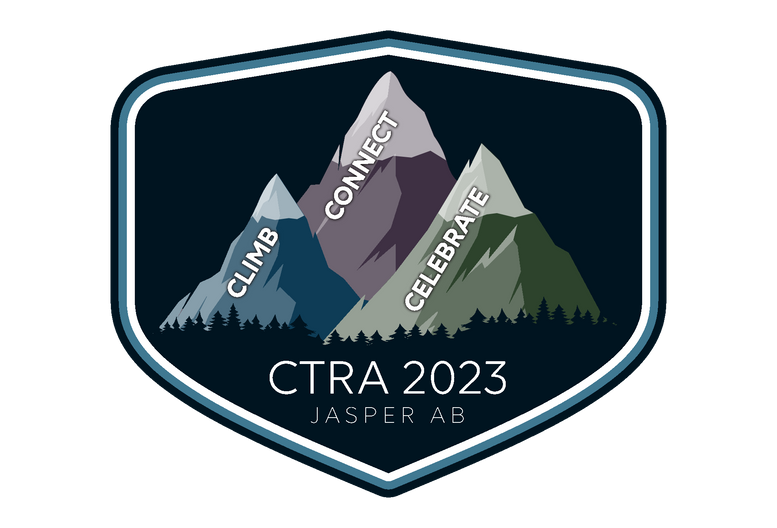


Quick
Navigation

Welcome to the 26th Annual Canadian Therapeutic Recreation Association Conference! As amazing Therapeutic Recreation professionals, we have all excelled in virtual learning, treatment, and connections for both us and our clientele. The question we ask is, “Who is ready to see, learn and connect IN PERSON?” We are excited to provide this tremendous opportunity to highlight, build knowledge around, and expand our profession.
As you review the conference program, we hope you find some innovative and exciting presentations throughout the conference. We are happy to see so many research presentations highlighted on Thursday afternoon, and a wide range of presentations that will leave you inspired and able to connect your new learnings back into your own practice. We are also honoured to present two very knowledgeable and strong representatives for recreation and leisure for our Opening and Closing Keynotes.
We hope you connect with fellow RecT’s through our social opportunities. On Wednesday night, we will be enjoying everyone’s company at the evening awards ceremony and cocktail hour, where we can spend time perusing our silent auction items and conversing with our Trade Show vendors who have brought with them a variety of the tools of their trade. For Thursday night, we are looking forward to hearing the laughter coming from the scavenger hunt and dinner theater. We also look forward to conversations in the hot tub or at the Emerald lounge after hours. As important as it is to take part in these educational opportunities, we know the importance of connecting socially afterwards – so we all hope you join in on the fun!
If you have travelled far for this conference: thank you and welcome to Alberta. We hope you stay for the weekend and enjoy beautiful Jasper, Alberta. It’s a small town with a lot of heart! Enjoy the townsite, fun stores, restaurants, and hidden gems along downtown. Take a small drive up to Pyramid Lake and head over to Pyramid Island for a relaxing walk and great views. Head south to Athabasca Falls for powerful sights and sounds. Stop, look in any direction, and breathe in the fresh mountain air.
We also want to thank our very hard working and dedicated planning committee. Over the last year, this committee has spent numerous hours VOLUNTEERING their time and energy into this conference. This conference would be nothing without our planning committee. So, thank you for all your hard work and dedication to making this conference a success.
We hope you enjoy your time at the conference, and we hope that you are able to embrace this year’s theme where you can CLIMB, CONNECT AND CELEBRATE our profession and yourself. We hope you go home with knowledge, resources, and stories to share.
See you at the lounge for a snack and a laugh!
Your Conference Co-Chairs
A Note from the Conference Co-chairs
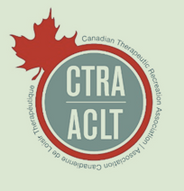
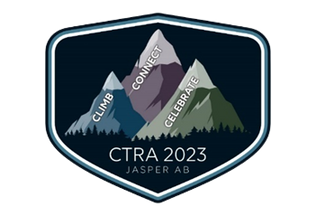
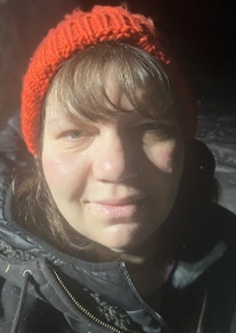
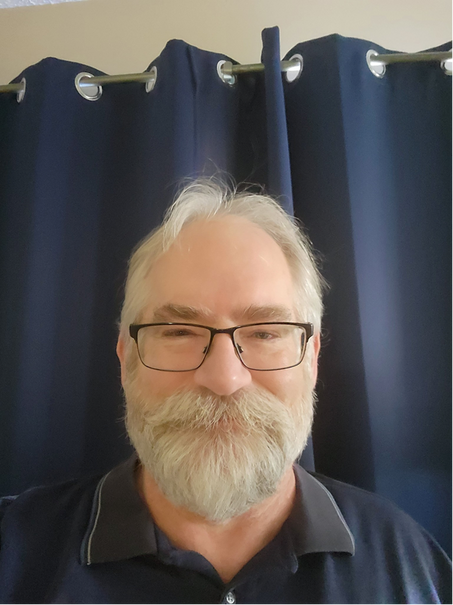
Pam Russ
Glenn Skimming
Welcome to CTRA 2023 – Climb, Connect, Celebrate
We are excited to finally be able to return to an in-person conference since the cancellation of the CTRA 2020 conference due to the COVID-19 pandemic. Luckily, we can host CTRA 2023 in Jasper, AB where we had intended to be in 2020. Jasper is located on the unceded territory of Treaty 6 and 8 and the traditional lands of the Anishinabe, Aseniwuche Winewak, Dene-zaa, Nêhiyawak, Secwépemc, Stoney Nakoda, Mountain Métis and Métis.
CTRA wishes to extend a sincere thank you for the tireless work and dedication of the planning committee who originally started working on the CTRA 2020 conference with many of those volunteers continuing to work over the last several years on the CTRA 2022 virtual conference as well as CTRA 2023. Your time, effort, expertise, and commitment has not gone unnoticed.
As I reflect on the last 3 years, the theme ‘Climb, Connect, Celebrate’ highlights for me, the therapeutic recreation profession. As a profession we have climbed over unanticipated hurdles and have been able to contribute to the health and wellness during a time of uncertainty. As recreation therapy professionals we have adapted to the changes required to safely deliver services. I for one, am looking forward to connecting with you all in Jasper so that we can celebrate together once again.
As you review the program schedule, I hope you’ll find the variety of sessions will meet your needs. There are sessions that span several practice areas that I hope you will find intriguing and exciting.
This year we are pleased to welcome Elder Wil Campbell who will be sharing with us his personal experiences through a session entitled, “Speaking from the Heart a Modern-Day Perspective on Indigenous Tradition”. This year’s keynote speakers, Bev Suntjens who will be opening and Matricia Bauer who will be our closing keynote.
While visiting Jasper I encourage you to take some time to enjoy, relax, connect and of course celebrate. Until then, consider submitting a nomination for a CTRA Award which we will present during the conference, what better way to celebrate than recognizing our colleagues for their contributions to the health and wellness of Canadians.
I look forward to greeting you all in Jasper,
Heather Baker, CTRS
CTRA President
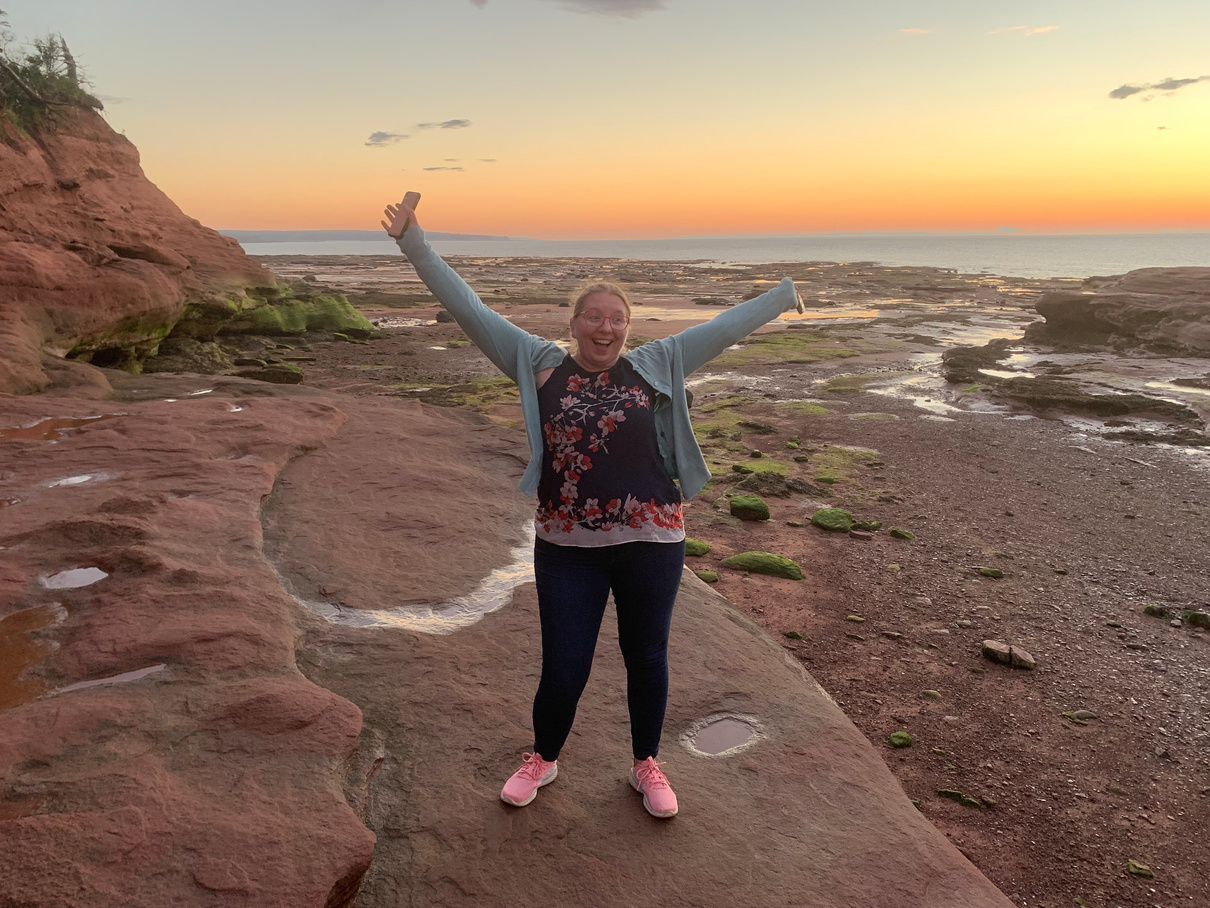
A Note from the PRESIDENT of CTRA
It is with great pleasure that I welcome you to the CTRA 2023“Climb, Connect and Celebrate” conference, being held from May 10-12, 2023, at the stunning Fairmont Jasper Park Lodge, in Jasper, Alberta. Just like our profession, our conferences continue to grow, develop, and get stronger year after year, and this year promises to be yet another amazing adventure in learning! After a few years of virtual learning, we are so thrilled to be getting together in person with all of you. We have presenters from all over Canada and the United States, coming together to share their knowledge, experiences and research which will enhance your practice of therapeutic recreation.
We hope that you are excited and looking forward to the variety of educational sessions, which have been carefully organized by our conference planning committee. I would like to thank and commend Pam Russ and Glenn Skimming, the 2023 CTRA Conference Co-Chairs, for their dedication in making this a truly outstanding program. The conference planning team has done an incredible job of putting together a tremendous conference package for you to enjoy. Because of the work of this committee, both the educational and social opportunities will be unique and energizing experiences.
I hope that attending the conference will be a rewarding experience, and I encourage you to use this occasion to catch up with old friends and make many new ones. We hope this conference is rejuvenating, motivating and provides you with many new ideas to make your practice of therapeutic recreation even better.
While you’re out in this area of Canada, don’t miss the opportunity to take some time and explore. The Rocky Mountains are an area you definitely want to see and experience. The vistas are truly extraordinary, the wildlife is amazing, and outdoor recreation opportunities will take your breath away!
Enjoy the conference and enjoy
your stay in Jasper, Alberta!
Tanea Goncalves Forward
CTRA Executive Director
A Note from the Executive Director of CTRA
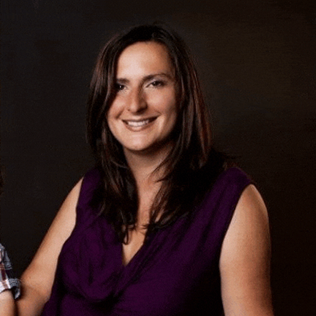
Yours in therapeutic recreation,
Bev Suntjens
President,
Alberta Therapeutic
Recreation Association
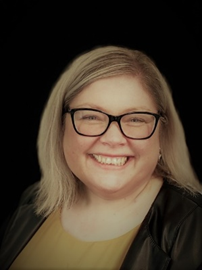
Dianne Bowtell,
Executive Director,
Alberta Therapeutic
Recreation Association
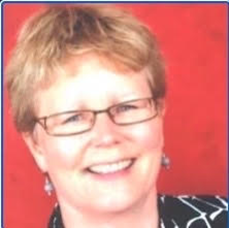
On behalf of the Alberta Therapeutic Recreation Association (ATRA) Board of Directors, and the Conference Planning Committee, we are thrilled to welcome you to Jasper, Alberta for the 26th Annual CTRA Conference.
Privileged to enjoy the beauty of this setting, we acknowledge that this municipality and Jasper National Park are on Treaty Six and Eight territories, as well as the land of Metis Region Number Four. As we learn, connect, and enjoy leisure time in this space, we are reminded of our responsibility to honour the relationship Indigenous Peoples have with the land, and our accountability to address the ongoing impacts of colonization that continue to affect Indigenous Peoples.
Our conference theme this year challenges us to Climb, Connect, and Celebrate. Looking coast to coast, it is easy to see the successful climb of the therapeutic recreation profession. We have seen advances in research, including last year’s launch of The Canadian Journal of Recreation Therapy. We have leveraged technology to connect with colleagues and clients, and to learn in new ways. And as we gather as conference delegates for the first time in four years, we are very eager to connect with friends and meet new ones. As a profession, we have so much to celebrate!
We would also like to celebrate and appreciate the volunteers who have made this event possible. Planning and delivering a conference of this size and quality takes a village of talented volunteers. The ATRA Board of Directors commends the Conference Planning Committee and all the volunteers for creating a rich opportunity for conference delegates to climb, connect, and celebrate our profession.
A Note from the President & Executive Director of ATRA
Jasper Townsite and Tourism
The creation of the railway across Canada in the early 1900s led to more settlers establishing themselves in what is now known as the Jasper townsite. Today, Jasper is a World Heritage site with over 2 million visitors passing through the park gates each year.
History of Jasper
The present-day Municipality of Jasper is located on Treaty 6 and 8 Territories. For as long as we know, a diversity of Indigenous Peoples used this land as a meeting ground, gathering place, travelling route and home. Over 26 Indigenous Partners remain connected to this area presently.
About Jasper
Ongoing Learning
More details about the history of this area and creation of Jasper National Park can be found on the Parks Canada website, along with the contact information for over 26 Indigenous Partners of Jasper who continue to identify a connection to this area.
The Jasper Museum currently includes exhibits on the fur trade, railway and early exploration and tourism in Jasper National Park. The Museum is open daily 10am-5pm and the fee is by donation.
The Municipality of Jasper is engaged in ongoing learning as we build relationships with Indigenous partners who are connected to these lands. This brief overview of Jasper’s History is a starting point as we continue to partner with Indigenous Peoples to tell the history of Jasper accurately and honestly.
History of the Land
The first recorded European to visit the Athabasca Valley was Surveyor David Thompson in 1810. At this time and throughout the 1800s, Indigenous Peoples continued to care for the land while they shared invaluable knowledge and guidance to European explorers and fur traders.

Creation of Jasper Forest Reserve
When Jasper Park Forest Reserve was created in 1907, Indigenous Peoples were forcibly removed and excluded from this part of their Traditional Territories. The land was used for European settler recreation and economic prosperity.
Following the removal of Indigenous Peoples, mountains, rivers, and other parts of the landscape were renamed with settler colonial names.
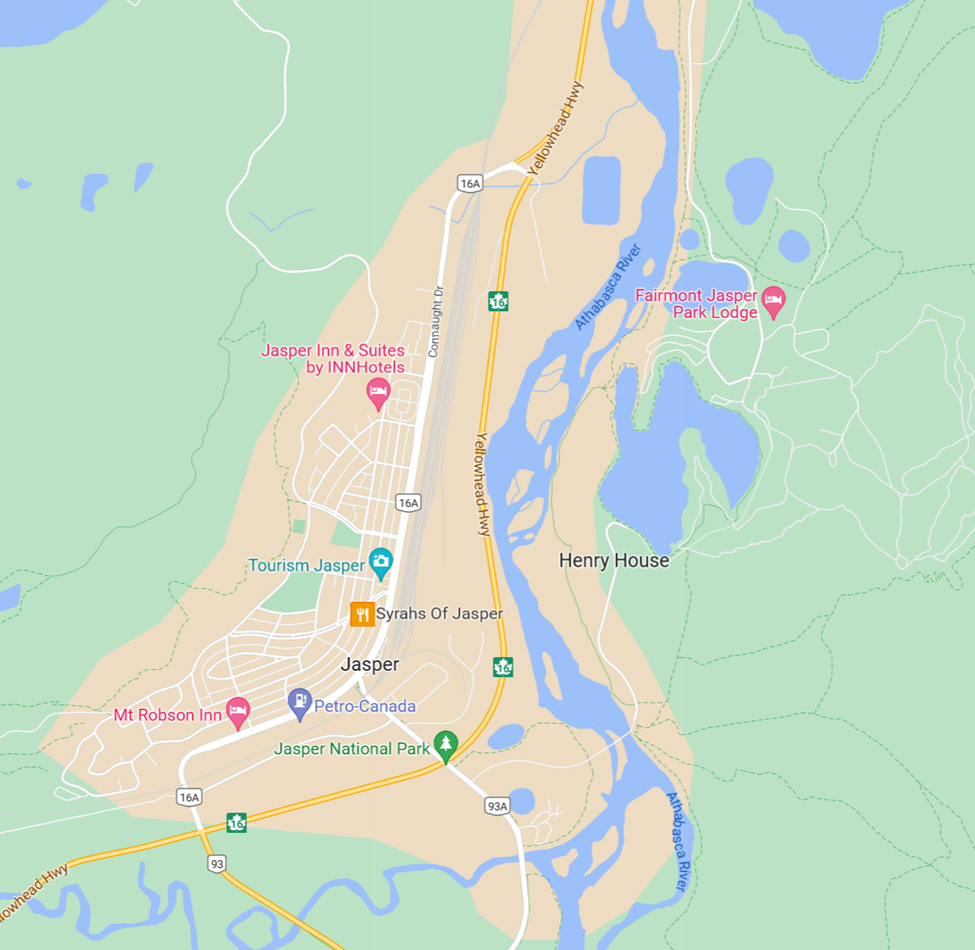
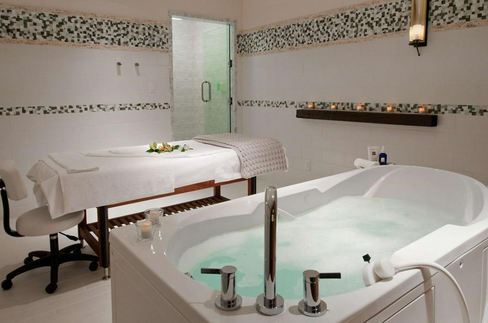
The 700 acre year-round luxury mountain resort wraps around the shores of the pristine lake “Lac Beauvert” and Canada’s #1 Golf Resort Course. The resort’s charming village of cedar chalets and Luxury Signature Cabins, all connected by picturesque paths, allow guests to explore the natural environment of the hotel within the largest national park in the Canadian Rockies.
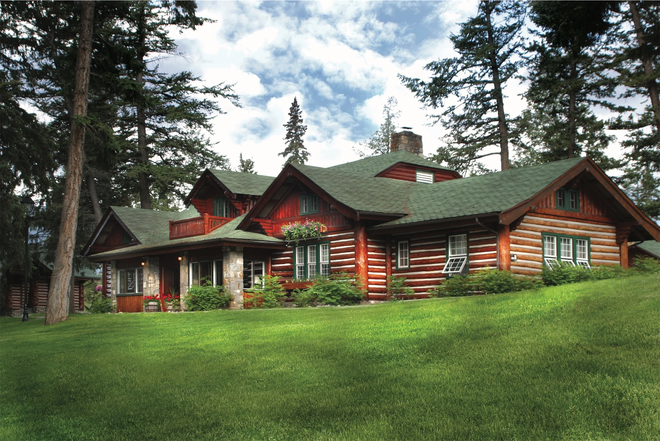

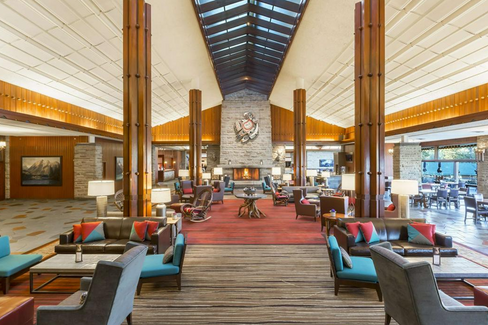
We are having some technical difficulties with the hotel booking system at the moment.
Delegates can try to call the Global Team at 1-800-441-1414 or the In-House Team at 1-866-540-4454. It is recommended that callers identify themselves as being with the CTRA Conference.
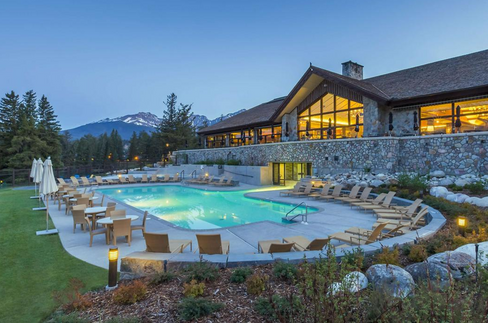
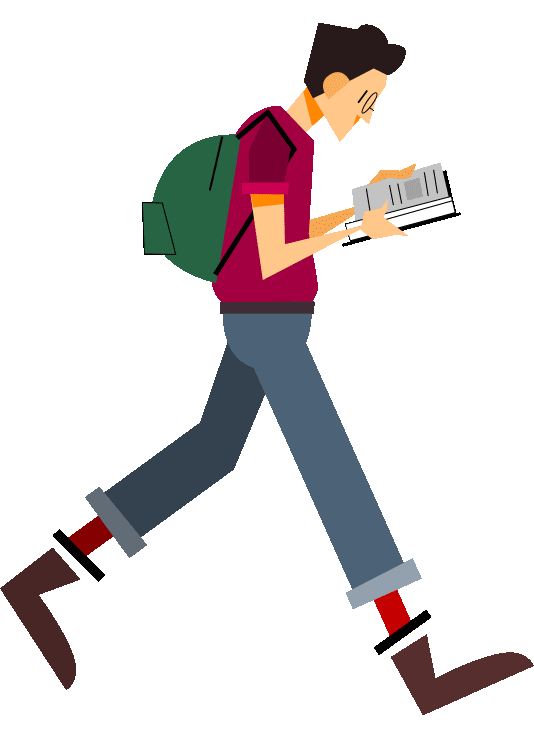
Around the Resort
Stay in one of 446 guestrooms featuring LED televisions. Your pillowtop bed comes with Egyptian cotton sheets. Complimentary wireless Internet access keeps you connected, and digital programming is available for your entertainment. Bathrooms have complimentary toiletries and hair dryers.
Check out the variety of programming available in and around the JPL Resort
As a way to encourage our delegates to explore the beautiful JPL resort we have decided to let you have breakfast on your own. Please look at the menu options below, enjoy the scenery and we will see you at the conference!
Snacks are also available at the coffee shop/cafe. Wrap up your day with a drink at the bar/lounge. Cooked-to-order breakfasts are available daily for a fee.
Pamper yourself with a visit to the spa, which offers massages, body treatments, and facials. After practicing your swing on the golf course, you can enjoy other recreational amenities including a health club and an outdoor pool. Additional features at this resort include complimentary wireless Internet access, concierge services, and ski storage.
Breaks & Food: Nutritional Break: Snack to be provided Lunch Break: Lunch to be provided Break: Delegates take a break, no snack provided *Coffee provided in the mornings. Delegates are encouraged to get breakfast around the resort or on their own. | |
tuesday may 9 | |
6:30pm-8:30pm | Registration Table Open |
Wednesday May 10 | |
7:00am-8:30am | Registration Table Open |
8:30am-12:00pm Half Day AM Session | 311 Making the Case for Adversity Informed Care in Therapeutic Recreation: Colleen Hood *Beauvert Room* CANCELLED 101 Connection, Creativity and Curiosity: The Collaborative Approach to Therapeutic Recreation Practice: Jessie Jones |
8:30am-10:00am | 103 Do the Grind Blind. A Collaborative Hiking Adventure Between Therapeutic Recreation and Blind Beginnings: Christina Duncan & Shawn Marsolais *Pyramid B* 104 A Unique Twist to Community Recreation Therapy: Collaborative Social Initiatives Addressing Social Isolation: Ellen Helgason, Alex Seefeldt, Lisa Orto, & Kim Larson *Pyramid C* |
10:00am-10:30am | Nutritional Break |
10:30am-12:00pm | 105 Expanding in Therapeutic Pet Visits to Reignite a Sense of Purpose and Responsibility for Those Living in Long-Term Care: Caitlyn Cheyne *Pyramid A* 106 NCTRC Recertification and Specialization Area Designation: Continuing Professional Competence: Susan Kaufer & Robin McNeal *Pyramid B* 107 Recreation Therapy Interventions for Sepsis Survivors: J Smith *Pyramid C* |
12:00pm-1:30pm | Lunch Break |
1:30pm-5:00pm Half Day PM Session | 108 Speaking from the Heart a Modern Day Perspective on Indigenous Tradition: Wil Campbell *Beauvert Room* 109 PERMA-Making it Work for Your Service Area: Carl Ings *Pyramid C* |
1:30pm-3:00pm | 110 Walk & Talk: A Moving Exploration of Place, Connection to Nature, and Wellbeing for TR Practice: Son Truong *Pyramid A* 111 Simulation in Therapeutic Recreation Education: Erin Turnell, Jaclyn England & Lucienne Soriano *Pyramid B* |
3:00pm-3:30pm | Break |
3:30pm-5:00pm | 112 How to Apply the Flourishing Through Leisure Model in Practice: Pei-Chun Hsieh *Pyramid A* CANCELLED 113 The Covid Connection: How Rec Therapy Can Adapt & Thrive: Katherine Vara |
6:30pm-7:30pm | Student/Professional Speed Networking |
7:30pm-10:00pm | Rocky Mountain Mix & Mingle: CTRA Awards, Silent Auction & Exhibitors |
Thursday May 11 | |
7:00am-8:00am | Registration Table Open |
8:00am-8:15am | Opening Remarks Greetings from His Worship Mayor Richard Ireland *Beauvert Room* |
8:15am-9:45am | 201 Opening Keynote Bev Suntjens: The Story of the Climb: An Intentional Map of Connection, Innovation and Perspective *Beauvert Room* |
9:45am-10:15am | Nutritional Break |
10:15am-11:45am | 202 Communities of Practice- CTRA *Beauvert Room* |
11:45am-12:30pm | Lunch Break |
1:00pm-2:00pm | 203 Building Culturally Responsive Practice and Social Justice Perspectives in TR: Son Truong *Beauvert Room* 204 Therapeutic Recreation: Making a Difference in Chronic Pain: Annette Yunick & Shana Wandler *Pyramid A* CANCELLED 205 Grant Writing and Resources: Exploring Recreational Therapy Foundation and More: Katherine Vara 206 Community Partnership to Support Recovery Journey: Carolyn Tivadar & Jenna De Guzman *Pyramid C* |
2:00pm-2:15pm | Break |
2:15pm-3:15pm | 207 Improving Health Quality of Life and Well-Being through Participation in Adapted Recreation: Amanda Ervin *Beauvert Room* 208 Giving Residents a Voice : Program evaluation in LTC from a dual perspective: Magdalena Blaise & Kelly Leonard *Pyramid A* 209 Partners, Teams, & Groups, Oh My!: Social Fitness Experiences: Emily Johnson *Pyramid B* 210 The Centre of Excellence for Therapeutic Recreation in Continuing Care: Sienna Caspar & Brooke Ringuette *Pyramid C* |
3:15pm-3:45pm | Nutritional Break |
3:45pm-5:45pm | Note: Sessions in this time block are 30 minutes each |
CANCELLED 213 Lived Experiences of Persons with Disabilities during the COVID-19 Pandemic: An Analysis of Online Forum Posts: Alicia Kuhr 316 NCTRC Recertification and Specialization Area Designation: Continuing Professional Competence *Pyramid A* | |
215 Infusing Wellness Opportunities into Integrated Youth Services in Canada: Jennifer Affolder, Matt Wegner & Teresa Campbell *Pyramid B* 216 Exploring the Experiences of young people in the Wellness Programs: Jennifer Affolder Matt Wegner & Teresa Campbell | |
217 Therapeutic Recreation as a Pathway to Supporting Mental Health in Northern Canada: Practitioner's Perspectives: Lauren Ray *Beauvert Room* 218 Peer Support for Young Stroke Survivors: Tiffany Morin | |
6:00pm-8:30pm | Rec-a-Palooza: Wine Tasting & Scavenger Hunt |
Friday May 12 | |
6:45am-7:15am | Exercise with Emma |
8:00am-11:00am Half Day AM Session | 302 Committee on Accreditation of Recreational Therapy Education (CARTE): Orientation to Accreditation and Site Visitor Training: Dr. Jared Allsop *Pyramid B* 304 TimeSlips: Creating Meaningful Moments with and for People with Memory Loss: Margaret Ushko *Pyramid C* |
8:00am-9:30am | 301 The Impact of Varying Job Titles in Canada: Mary Dwulit *Beauvert Room* 303 Leisure Based Wellness Programs and Thriving Community Partnerships: Jennifer Affolder, Matt Wagner and Teresa Campbell *Pyramid A* |
9:30am-10:00am | Nutritional Break |
10:00am-11:00am | 305 Using Photovoice as a Therapeutic Intervention: Pei-Chun Hsieh *Beauvert Room* CANCELLED 306 The Use of Leisure Education by Recreation Therapists in Mental Health Services: Anne Robins |
11:00am-11:15am | Break |
11:15am-12:15pm | 307 Leisure EDucation - The Role of Recreation Therapy in the Treatment of Eating Disorders & Dysfunctional Exercise: Lacey Paulsen *Beauvert Room* 308 Be the Change You Wish to See in the Workplace - Recreation Therapists as Change Agents!: Sienna Caspar *Pyramid A* 309 Dementia Care Enabling Garden- Imagining, Creating and Sustaining Use of Outdoor Space: Caitlyn Cheyne *Pyramid B* |
12:30pm-2:00pm | Lunch |
316 Standards of Practice *Beauvert Room* | |
2:00pm-3:30pm | 102 Living Losses: The Role of TR in Enduring the Grief Associated with Disability, Illness and Caregiving: Dr. Colleen Hood & Dr. Lauren Cripps *Beauvert Room* CANCELLED 312 Private Practice in TR - Building B.O.L.D (Balanced Outdoor Learning and Discovery) Programs: Jackie Greenlee 313 Enhancing Social Connectedness in LTC: Impact of Reconnecting with GENIE: Nicole Brander & Michelle Sharpe *Pyramid B* 314 Answering the Call: Navigating the Role of Therapeutic Recreation in Person-Centred Behaviour Support: Leanne Hughes *Pyramid C* |
2:00pm-3:30pm | Note: Sessions in this time block are 30 minutes each *Pyramid A* 211 Sexual Health and Intimacy in the Twilight Years: a TR Perspective: Lorena Oliveira 212 The Role of Leisure in Older Adults Moving to New Homes: Implications for Therapeutic Recreation Professionals: Kristin Prentice 214 Write it down!: Sharing Results from Two Scoping Reviews Exploring the Role of TR in Supporting Two Specific Populations: Christine Ausman |
3:30pm-3:45pm | Break |
3:45pm - 4:45pm | 315 Closing Keynote: Matricia Bauer: Thinking of Medicine, Therapy and Healing in a term of the Medicine Wheel; Spiritual, Mental, Physical, Emotional *Beauvert Room* |
All in person delegates will have the opportunity to view the recorded sessions up to 45 days after the end of the conference. | |
for delegates attending in person

At a Glance
Webinar Sessions
At a Glance

Note: This is a set program for delegates attending the conference virtually | |
Wednesday May 10 | |
8:30am-12:00pm Half Day AM Session | 311 Making the Case for Adversity Informed Care in Therapeutic Recreation: Colleen Hood CANCELLED 101 Connection, Creativity and Curiosity: The Collaborative Approach to Therapeutic Recreation Practice: Jessie Jones |
1:30pm-5:00pm Half Day PM Session | 108 Speaking from the Heart a Modern Day Perspective on Indigenous Tradition: Wil Campbell |
Thursday May 11 | |
8:15am-9:45am | 201 Opening Keynote Bev Suntjens: The Story of the Climb: An Intentional Map of Connection, Innovation and Perspective |
1:00pm-2:00pm | 203 Building Culturally Responsive Practice and Social Justice Perspectives in TR: Son Truong |
2:15pm-3:13pm | 207 Improving Health Quality of Life and Well-Being through Participation in Adapted Recreation: Amanda Ervin |
3:45pm-5:45pm | 217 Therapeutic Recreation as a Pathway to Supporting Mental Health in Northern Canada: Practitioner's Perspectives: Lauren Ray 218 Peer Support for Young Stroke Survivors: Tiffany Morin |
Friday May 12 | |
8:00am-9:30am | 301 The Impact of Varying Job Titles in Canada: Mary Dwulit |
10:00am-11:00am | 305 Using Photovoice as a Therapeutic Intervention: Pei-Chun Hsieh |
11:15am-12:15pm | 307 Leisure EDucation - The Role of Recreation Therapy in the Treatment of Eating Disorders & Dysfunctional Exercise: Lacey Paulsen |
2:00pm-3:30pm | 102 Living Losses: The Role of TR in Enduring the Grief Associated with Disability, Illness and Caregiving: Dr. Colleen Hood & Dr. Lauren Cripps |
3:45pm - 4:45pm | 315 Closing Keynote Matricia Bauer: Thinking of Medicine, Therapy and Healing in a term of the Medicine Wheel; Spiritual, Mental, Physical, Emotional |
session descriptions
Wednesday May 10, 2023
CANCELLED 101 - Connection, Creativity and Curiosity: The Collaborative Approach to Therapeutic Recreation Practice: Jessie Jones Session Outline: Discover the Collaborative Approach and learn how to apply it to your setting! The Collaborative approach uses connection, creativity and curiosity to navigate your TR practice to new heights by looking through the assessment, planning, implementation, evaluation and documentation process (APIED) lens. It's a modern-day approach to therapeutic recreation using parts of Mihaly, Datillo, Strumbo, Montessori and Reggio Emilia! Jessie's excitement is to empower and ignite passion in recreation therapists, enabling you to create a culture of curiosity, awe and wonder embedded at the heart of your setting. Objectives:
Speaker Bio(s): Jessie Jones - I am a Recreational Therapist, Artist, Writer, Educator, Mother and Wife. I have experience working with many populations, including children and youth, adults and seniors. My private practice, Jess Jones Recreation Therapy, is growing to serve children and youth with developmental disabilities, adults with mental illnesses, and seniors with cognitive diseases such as dementia. However, I serve humans of all ages and abilities, focusing on connection, creativity, and curiosity. In addition to my field experience, I have a diploma in Culinary Management from Fanshawe College and a diploma in Recreation Therapy from Canadore College. I am currently in my fourth year at Brock University, earning my Honours Bachelor of Recreation and Leisure Services, concentrating on Therapeutic Recreation & Leisure Counselling. My education objective is to write my NCTRC exam to become a Certified Therapeutic Recreation Specialist (CTRS) and continue with my Masters of Psychology in Counselling to become a Registered Psychotherapist. I am a member of the Therapeutic Recreation of Ontario (TRO) and am a R/TRO candidate. In 2022, I was TRO’s recipient of the Adrienne Gilbert Award of Excellence. In addition, I have served on several of TRO’s committees, including their Chair of Social for their conference committee, private practice communities, and mental health communities of practice. I am also a Canadian Therapeutic Recreation Association (CTRA) member. I have had the opportunity to present as a speaker on my original lecture, “Using Art Modalities as Antidotes to Adversity,” to TRO and CTRA’s 2022 conference. My vast experiences have manifested into my journey of becoming a CTRS. I am a writer, artist, musician and storyteller. For many years, I travelled our great nation of Canada as a musician and performer. In 2004, I was accepted into the College of Art and Design for Fine Arts. However, I pivoted shortly after earning a diploma in Culinary Management, where I became an executive pastry chef and practiced the art of cooking and baking for 15 years. As of 2017, I picked up my paintbrush, began painting again and started Jess Jones Art. I focused on illustration, painting and design and earned a professional membership with the Canadian Arts Council. In 2021, I started my private practice in therapeutic recreation through Jess Jones Recreation Therapy. Over the last year and a half, we have grown to serve hundreds of people within the community, opened a brick-and-mortar location in london, Ontario and have started guest teaching. I have two beautiful young daughters who greatly influence my work. They challenge me to be a better person, practice self-awareness and teach the importance of creativity, play, and imagination. I am an intuitive being and a heart-centred leader. My values include connection, creativity and curiosity, and I aspire to lead with these values in both my professional and personal endeavours. I have a loud laugh and a great sense of humour. I am dedicated to supporting those with perceived limitations and disabilities and those who need mental, emotional and physical guidance. My services are available for anyone looking for meaningful opportunities, connections and a creative approach to holistic well-being. |
102 – Living Losses: The Role of TR in Enduring the Grief Associated with Disability, Illness and Caregiving: Dr. Colleen Hood & Dr. Lauren Cripps Session Outline: Death is an inevitable part of the human experience, a finite loss that often precipitates the need for unexpected adjustment and adaptation. However, death is only one form of loss experienced by human beings. In this presentation, we will examine the experience of “living losses” as they pertain to individuals with disabilities and illnesses, or who are caregiving for others with disabilities or illnesses. We will explore the essential nature of living losses, the tasks associated with adaptation to these ongoing, chronic types of losses-with a particular focus on acceptance, and, notably, we will address the central place of TR in supporting acceptance of chronic and ongoing living losses. Objectives:
Session Bio(s): |
Colleen Deyell Hood, Ph.D., RP, CTRS is a professor in the Department of Recreation and Leisure Studies at Brock University in St. Catharines, Ontario Canada. Her areas of interest and expertise are therapeutic recreation professional practice, mental health and well-being, and strengths-based TR practice. Dr. Hood is the co-author, with Dr. Carruthers, of the Leisure and Well-Being Model. Dr. Hood is also a Registered Psychotherapist in the province of Ontario and she manages a small private practice. Dr. Hood and Dr. Carruthers are currently completely a new book for TR professionals entitled Facilitating Client Change in Therapeutic Recreation: A Strengths-Based Perspective. |
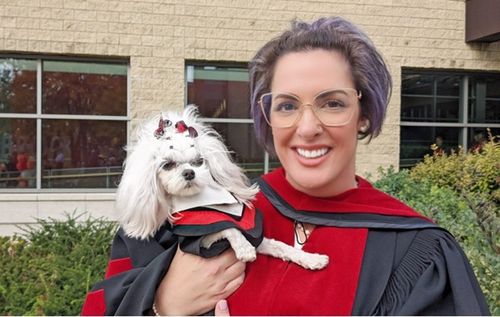
Dr. Lauren Cripps is a community engaged scholar who focuses on building authentic relationships and creating effective and meaningful programs through participant voice. Lauren is an active member of the CTRA board of directors, currently serving as the education director and President-Elect. Lauren chaired the development of the 2023 CTRA standards of practice and she is serving as the founding Editor for the Canadian Journal of Recreation Therapy. Lauren is an adjunct faculty member at Brock University, teaching in the Concurrent Education and Master of Education programs. Lauren is also a faculty member at Georgian College where she led the development of the Interdisciplinary Mental Health Practice post-graduate program. Outside of her professional pursuits, Lauren is a proud mother to Nyla, Emma, Willa, and Luca, who she attributes as her greatest accomplishment. She is well known for her love of animals and spent the first decade of her ‘adult’ life as a registered veterinary technician and passion for animals continues to help her blur the lines between work and play. Lauren identifies as a neurodivergent woman, with indigenous roots, and is proud to explore the world of teaching, learning, life, and love with her small but mighty service dog “Sophie”. |
103 - Do the Grind Blind. A Collaborative Hiking Adventure Between Therapeutic Recreation and Blind Beginnings:
Christina Duncan & Shawn Marsolas
Session Outline:
Hiking the strenuous Grouse Grind with little or no sight? Why? Why not? Anyone who is blind or partially sighted has the right to try any activity, including the grueling, steep, bumpy, root filled 2.5 kilometer trail to the top of Grouse Mountain in North Vancouver, BC. With support and lots of direction, anything can happen. For children and youth who have vision loss, having a new and unique experience that they can tell their friends about is truly important for healthy growth, development and positive self-esteem. Discover the impact of a hiking program that was developed from a partnership between Recreation Therapy at Sunny Hill Health Centre, at BC Children's Hospital and Blind Beginnings.
Objectives:
- Participants will learn about the impact of developing networks and building community partnerships between Recreation Therapists and community partners
- Participants will be able to describe the importance of the relationship between Recreation Therapy and community partners in improving leisure access to persons with disabilities
- Participants will gain an understanding of the importance for children and youth who have vision loss to participate in a unique hiking adventure
Session Bio(s):
At age twelve, Shawn Marsolas learned that she had a degenerative eye condition that would gradually result in blindness. Frustrated by the belief that there were no longer any expectations for her to succeed, Shawn became determined to prove to her family and to the world that she could make something of herself. Following high school she completed a Bachelor’s degree and began training for the Paralympics. After graduating from UBC, she worked as a Learning Support Assistant at a school for the blind in England. Shawn began to see a pattern of unrealized potential in the blind children she was working with. She remembered feeling little was expected of her during adolescence, and was determined to convince parents and professionals that expectations of blind and sighted children should be the same.
In 2008, after working in the blindness field for almost a decade, Shawn founded Blind Beginnings, a non-profit organization that supports BC children and youth who are blind or partially sighted and their families. Through Blind Beginnings Shawn has provided social and experiential learning opportunities for children, demonstrated to blind youth and their parents the capabilities of people who are blind, and created a community of support for families,. Shawn is also a registered clinical counsellor with a Masters in Vocational Rehabilitation Counseling, and provides individual counseling and support groups to youth and their parents. Shawn is a role model to the families she works with; in addition to being a non-profit leader and counselor, she is also a retired Paralympic athlete, a podcaster, presenter, disability educator, and a mother.
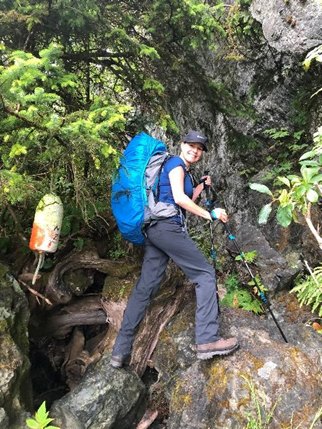
Christina Duncan has been a Recreation Therapist for over 22 years, working at Sunny Hill Health Centre, at BC Children’s Hospital. Christina works primarily with the Hearing Loss Team and The Vision Interprofessional Assessment Team, while also assisting patients in Acute Rehabilitation. Born and raised in North Vancouver, the British Columbia mountains and Pacific Ocean have always been her backyard playground. Christina describes herself as an avid hiker, boater, paddler, skier and outdoor enthusiast. When not working, she and her husband love exploring the outdoors and traveling the world, occasionally being joined by their two adult daughters.
104 - A Unique Twist to Community Recreation Therapy: Collaborative Social Initiatives Addressing Social Isolation:
Ellen Helgason, Alex Seefeldt, Lisa Orto, & Kim Larson
Session Outline:
Community involvement and engagement in socialization decreases loneliness, improves quality of life, and improves overall well-being. In 2021, Allied Health in AHS Central Zone was provided with COVID19 Uplift funding that has allowed the piloting of Community Recreation Therapist positions in Drumheller, Hanna, Three Hills and Lacombe. The goal was to improve overall health and wellness in our senior population through increasing opportunities for socialization and community connections. The Community Recreation Therapists had the opportunity to collaborate with community stakeholders, with the ability to connect and guide existing community supports, and programs to bridge the health and social gap. All communities have had significant success, primarily due to using a collaborative approach and the initiatives designed to meet identified community needs. This session will look at the role, design and successes of this unique position and the impact it had on each community.
Objectives:
- Identify the factors that may place seniors at risk of social isolation and loneliness.
- Identify useful concepts and successful approaches to social innovation.
- Identify social initiatives that were collaboratively implemented in 4 Alberta Communities to address social isolation.
Session Bio(s):
Alex Seefeldt has been a working CTRS for 5 years and was apart of the Community Recreation Therapist pilot project in Lacombe AB. Alex has experiencing working with dementia, brain injury, ortho, and transition program clients. During her free time she enjoys spending time with her 130 lb dog and 2 cats, kayaking, and going for coffee visits with friends.
Lisa Orton currently a Clinical Lead in the Recreation Therapy Department at the Drumheller Health Centre for LTC/SL4. I have been a Recreation Therapist for 17 years and the majority of my work has been in Drumheller. In 2021-2022 I completed a 15-month COVID 19-uplift position as a Community Recreation Therapist in Drumheller, Hanna & Three Hills.I am a wife and mother of two very active boys. I spend the majority of my weekends in cold arenas in central Alberta. I love all things leisure, as it comes with the territory, such things include, swimming, camping, reading and riding my bike. I have recently joined a Rails to Trails task force to assist with some fundraising efforts to turn the current CN rail lines into usable pathways for the Drumheller Valley.
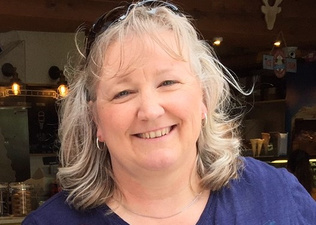
Ellen Helgason is an AHS community recreation therapist in Central Albert. She has been in the profession over 30 in Moose Jaw, Regina, Grande Prairie and for the past 4 years in Red Deer. She is passionate about developing programming and supports so that people can age within their community, safely, independently, with dignity and to invest in the wellness of their care partners. She is a member of the Community Partners in Action who have built partnerships in Innisfail to support those community needs. Innisfail has the designation as a rural, Dementia Friendly Community. The CPIA was in the top four finalists for the National Dementia Friendly Communities Award through the Canadian Alzheimer’s Society.
Outside of work, Ellen’s leisure includes cooking, travelling, camping, kayaking, biking, snowshoeing, and spending time with family and friends.
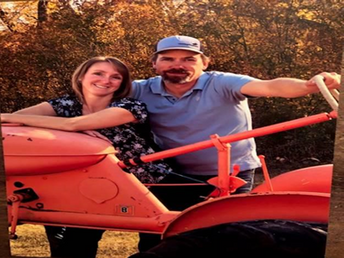
Kim Larson - After completing my degree in Recreation and Leisure Studies through U of A I was hired by Alberta Health Services in 2005 and spent 17 years working in Long Term Care in first Hanna and then Drumheller as a recreation therapist II. In 2013 I began a half time job share of a full time position- shared with Lisa Orton- at long term care in Drumheller. From July 2021-Septebmer 2022 Lisa and I split a full time AHS COVID uplift position as Community Recreation Therapists in the communities of Drumheller, Hanna and Three Hills. When this position ended and we transferred back to Long Term Care and although the half time job share was providing the right work/life balance I knew it was time for a change of paths for me. I am currently working for the Big Country Primary Care Network as a community liaison coordinator- working with seniors living in the community in both the clinic and community group program settings.
My husband and I run a mixed farming operation near the Hand Hills just outside Drumheller, AB. It is very much a joint venture and when I am not at work you can find me running the seeder or combine or helping with the cows. We have 3 children- Kirby, 15, Kylie, 12 and Riley, 8 who keep us busy but we wouldn’t want it any other way! We are very involved in our community, volunteering on 2 local Ag Societies, the Delia Skating Club, and Delia School.
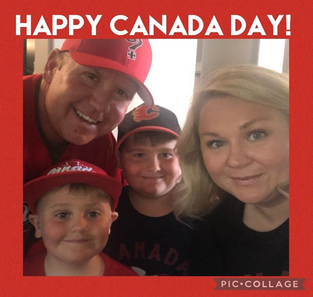
Lisa Orton - I completed a diploma in Therapeutic Recreation Gerontology from the Lethrbridge Community College in 2003. I then transferred into my 3rd year of a Bachelor of Community Rehabilitation and Disability Studies at the University of Calgary. I was hired in June 2005 with AHS and have worked at the Drumheller Health Centre as a Recreation Therapist I, II and now a Clinical Lead for the last 17 years. In 2013 after coming back from a maternity leave with my first son, I started a ½ time job share of the full-time position with Kim Larsen. From July 2021-Septebmer 2022 Kim and I split a full time AHS COVID uplift position as Community Recreation Therapists in the communities of Drumheller, Hanna and Three Hills. After the position ended, I returned back to Long Term Care.
I am a wife and mother of two very active boys, Jared -10 and Riley- 8. I spend the majority of my winter weekends watching hockey in cold arenas in central Alberta and I spend my summer weekends at our seasonal campsite at Ol’ MacDonalds resort on Buffalo Lake. I love sunshine, red wine, reading, swimming and riding my bike. I have recently been involved with the Rails to Trails task force to assist with some fundraising efforts to turn the current CN rail lines into usable pathways for the Drumheller Valley. My favorite day of the year is Canada Day!
105 - Expanding On Therapeutic Pet Visits to Reignite A Sense Of Purpose And Responsibility For Those Living In Long Term Care: Caitlyn Cheyne
Session Outline:
This session will look at and discuss how the Wellington Terrace Long Term Care Home expanded on pet therapy visits during the Covid-19 pandemic to help recreate a sense of purpose and responsibility for residents living in long term care and how it helped to improve overall quality of life. The session will discuss the development of pet therapy programming within a home and then expand on program ideas, development and growth, implementation, and outcomes.
Objectives:
- Participants will engage in discussion to help develop pet therapy programs and motivate new thoughts and passions about implementing pet therapy interventions for their residents.
- Participants will leave the session with an understanding of the power of pet therapy interventions
- Participants will leave the session with ideas and knowledge on how to expand on their current pet therapy visits and develop new opportunities and interventions
Session Bio(s):
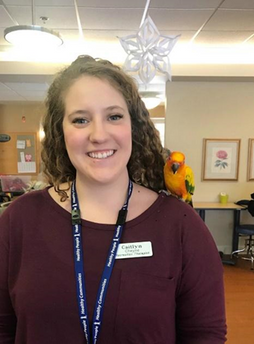
Caitlyn Cheyne is an Honors graduate from Niagara College and a Graduate from Brock Universities Recreation and Leisure Studies program with a major in Therapeutic Recreation. Caitlyn obtained her CTRS certification in November 2015 and is also a Registered Recreational Therapist through TRO – Therapeutic Recreation of Ontario. Caitlyn works at the Wellington Terrace Long Term Care home in Fergus Ontario where she has worked for the past 7 years. The facility has 6 neighborhoods and 176 beds. Caitlyn’s neighborhood consists dementia care, mental health and complex care.
Caitlyn sits on the Program Advisory Committee for Queens College where she helps review and revise current curriculum for program development.
In her spare time Caitlyn volunteers with her work's “No One Dies Alone” program that ensures support to each resident until the end of life, as well as with community organizations to fundraise and support local children's involvement in sports.
106 - NCTRC Recertification and Specialization Area Designation: Continuing Professional Competence:
Susan Kaufer & Robin McNeal
Session Outline:
This session provides an in-depth coverage of recertification standards and requirements for the areas of specialization. Continuing education, professional experience, and re-examination will be described in detail. Utilization of the 2021 NCTRC National Job Analysis Study in relation to recertification requirements will be discussed.
Objectives:
- Define the NCTRC CTRS recertification standards including the two components, interpretive guidelines, necessary hours required for recertification and the requirements for the areas of specialization
- Apply the 2021 National Job Analysis Study to the recertification process
- Restate the two methods of the NCTRC recertification review process
Session Bio(s):
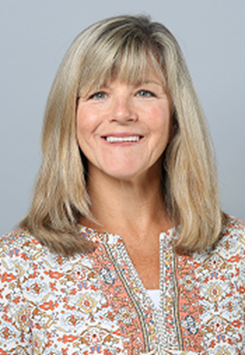
Susan Kaufer, CTRS, has been an NCTRC Credentialing Specialist since 1997. Susan earned her Bachelor’s degree in Recreation and Leisure Studies from SUNY Brockport. She attends and speaks at professional Therapeutic Recreation conferences, provides webinars and university campus guest lectures several times each year. Other responsibilities include serving as NCTRC committee liaison, review of certification applications and assisting with customer service matters. Prior to NCTRC employment, Susan had over 10 years of professional practice in the Therapeutic Recreation field in the areas of Behavioral Health, Geriatrics and Developmental Disabilities.
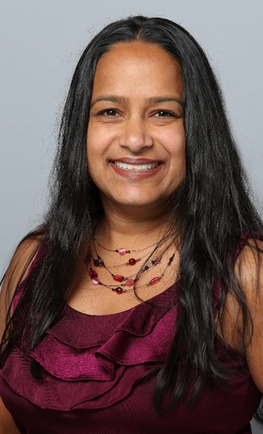
Robin is the Director of Credentialing and also a Credentialing Specialist at NCTRC. As the Director of Credentialing, she serves as the primary contact for all internal procedures regarding the NCTRC Credentialing program. She is also responsible for reviewing certification applications and answering questions about each application process. She has 7 years of clinical experience working in various settings including physical rehabilitation and long term care. Robin has her Bachelor’s degree in Therapeutic Recreation from Ithaca College. She has attended various local and regional TR conferences and has presented at local, national and international conferences and colleges on NCTRC Certification, Recertification and Specialization Area Designation.
107 - Recreation Therapy interventions for Sepsis Survivors J Smith
Session Outline:
Understand the diagnosis of Sepsis. Recognize the signs and symptoms in acute patients, including mental health symptoms. Hear about the variety of long-term symptoms many people experience and discover opportunities for recreation therapy interventions post-sepsis. Hear the latest about long-haul symptoms and ideas of how to assist clients experiencing various symptoms and disabilities 3-4 months post sepsis.
Objectives:
- Understand the diagnosis of Sepsis.
- List at least 5 symptoms of Sepsis.
- Identify at least 5 recreation therapy interventions to support clients recovering from sepsis, including interventions to support people experiencing long-haul symptoms.
Session Bio(s):
J Smith has an undergraduate degree in Leisure Studies from UVic and a master's in TR from San Jose State University. She also did a PhD program at Penn State University. She currently works at Northern Health in Northern BC in Community Mental Health. She has been a CTRS since 2001 and served on the board of BCTRA and also CTRA. J has been active member of CTRA and ATRA-US. She is currently one of 30 health care professionals chosen from across Canada for the first 2 year Sepsis Canada training and collaborative research program. In her free time, J enjoys gardening, walking/hiking, and spending time in nature.
108 - Speaking from the Heart a Modern Day Perspective on Indigenous Tradition: Will Campbell
Session Outline:
Wil Campbell is an indigenous elder who will speak to Indigenous and Canadian History and how history is taken for granted in Canada. Canadian History involved colonialism and the taking of Land and Freedoms from Indigenous Nations. Wil brings an experienced lens to sharing what is currently taking place in Canada and in other nations regarding Indigenous Peoples. He will discuss how Indigenous Nations in Canada are finding their voice. He will also discuss how the residential school system had a profound affect on indigenous culture and will discuss how the experiences in the residential school system affected indigenous society in Canada. He will also share how indigenous leaders of today are more highly educated than their families and are writing truth and stories about indigenous history.
Objectives: by the end of the session, participants will learn about:
- Historical Context of the Indigenous People in Canada
- Indigenous History which is much different than the History of Canada
- Why Canadians Take history for Granted
- Metis Growth in Canada and its importance
- How Indigenous people were viewed by various levels of Government
- Residential Schools and why those schools had such an affect on indigenous society
- WW II Indigenous involvement and what happened after
Session Bio(s):
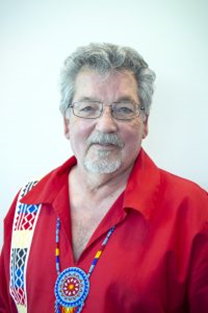
Wil Campbell - With over 40 years of experience and numerous awards to his name Wil Campbell has been involved in management, development, and cultural leadership with Indigenous people nationally and internationally. He sits on a number of international Indigenous councils, has extensive experience promoting Indigenous culture and language in the film, television and radio industries, and works directly with families to maintain their connection to culture and community and follow their own healing journey. His influence and his work, reverberates nationally, internationally and directly with families and communities.
Will was born in Northern Saskatchewan and grew up in a traditional trapping family. He personally experienced the impact of colonialism and displacement that many Indigenous people face. He was placed into foster care in 1953 and spent most of his early life in the foster care system.
Wil is an Elder with Native Counselling Services of Alberta.
109 - PERMA-Making it Work for Your Service Area: Carl Ings
Session Outline:
This session will look at the development and implementation of a positive psychology based TR program for an adult psychiatric unit. It will also explore other service areas using or which could use the PERMA Profiler as a tool to measure individual and program effectiveness.
Objectives:
- Participants will see how PERMA Profiler can document client progress.
- Participants will see how PERMA profiler can measure overall program effectiveness.
- Participants will be able to list at least 3 service areas PERMA Profiler can be utilized to measure effectiveness of TR services.
Session Bio(s):
Carl Ings is a Recreation Development Specialist with Central Health. He currently works in Mental Health and Addictions with both Youth and Adults in Grand Falls-Windsor, NL. He worked in Long Term Care for 19 years prior to this switch in October of 2018. He graduated from Dalhousie University in 1999 with a BRec in Therapeutic Recreation. In 2001 obtained his CTRS status from NCTRC. Carl has presented provincially, nationally, and internationally on a variety of Recreation Therapy topics. For those who don’t know him, Carl thoroughly enjoys his leisure time and enjoys a variety of leisure activities such as golf, camping with his family in the summertime, playing hockey, coaching volleyball, cross country skiing, curling, playing cards, and snowmobiling in the winter (just to name a few)
110 - Walk & Talk: A Moving Exploration of Place, Connection to Nature, and Wellbeing for TR Practice: Son Truong
Session Outline:
Connection to nature is a term that is used to describe our relationship with the more-than-human world. It is often associated with an awareness of self and sense of belonging or interconnectedness with the natural world. There is a rich body of literature suggesting that contact with nature is beneficial for health and wellbeing, as well as serves as a predictor for pro-environmental behaviours, that in turn have also been related with enhanced wellbeing. This presentation is envisioned as an outdoor interactive session. We will begin with a discussion on theories and principles underlying the benefits of connection to nature, including examples of interdisciplinary programs/interventions that were designed and implemented to support community wellbeing. The session will include an experiential activity to explore mindfulness and nearby nature, as well as time for collaborative discussion on ways to support the development of nature-based TR in our work and areas of practice.
Objectives:
- Identify and describe three aspects of the ecological circle in ecotherapeutic work
- Identify and describe at least three psychosocial benefits of connection to nature
- Identify and describe at least two ways that mindfulness in nature may be integrated into TR practice
Session Bio(s):
Son Truong, PhD, CTRS is an Associate Professor in Therapeutic Recreation and Community Wellbeing in the Faculty of Health at Dalhousie University, with cross-appointments in the School of Social Work and the College of Sustainability, and an Affiliated Scientific Staff Member at the IWK Health Centre. He is also an Adjunct Fellow in Sustainability and Health and Physical Education at Western Sydney University, Australia. He has extensive experience working in diverse settings, including in recreation therapy, outdoor recreation, experiential education, and community development in majority and minority world contexts, particularly with communities experiencing marginalization. He has presented and published in the area of mental health and wellbeing, outdoor learning and play, connection to nature, and sustainability education.
111- Simulation in Therapeutic Recreation Education: Erin Turnell, Jaclyn England & Lucienne Soriano
Session Outline:
This session will explore the use of simulation in health care education. Join members of NorQuest College Instructional Team as they share the exciting and innovative ways in which simulation can enhance student learning and prepare students for their clinical placements. Simulation as a teaching method, is becoming more prevalent in health care education and focuses on the experiential learning that is provided through simulation. The NorQuest TR program has been developing and implementing simulation learning opportunities for learners for over a decade. This session will provide a snapshot into the world of simulation with an overview of the learning theories associated with simulation, how to use simulation in the classroom, and opportunity to engage in a simulation experience.
Objectives:
- Describe simulation in health care education.
- Identify three learning theories associated with simulation.
- Participate and reflect on a simulation expereince.
Session Bio(s):
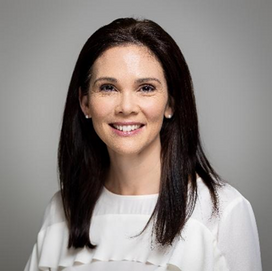
Erin Turnell is the Program Chair and instructor in the Therapeutic Recreation Diploma (TRD) Program at NorQuest College. Erin’s career in recreation therapy spans more than two decades with experience working as a recreation therapist in a variety of health care settings including; assisted living, adult day programs, acute care, and community rehabilitation. Ten years ago, Erin was able to combine her passion for recreation therapy and teaching, and move into a new career path as a post-secondary instructor. Recognizing that her work in adult education has not fully evolved, she continually seeks new opportunities to expand her knowledge of how to best educate those seeking their own personal and professional development. In 2022, Erin returned to the student role when she commenced a Master of Education in Health Sciences Education. Erin’s own leisure time is spent with her family exploring the beauty of the Rocky Mountains, playing the cello, enjoying the beautiful Edmonton River Valley, and she is sure to never miss Sunday football!
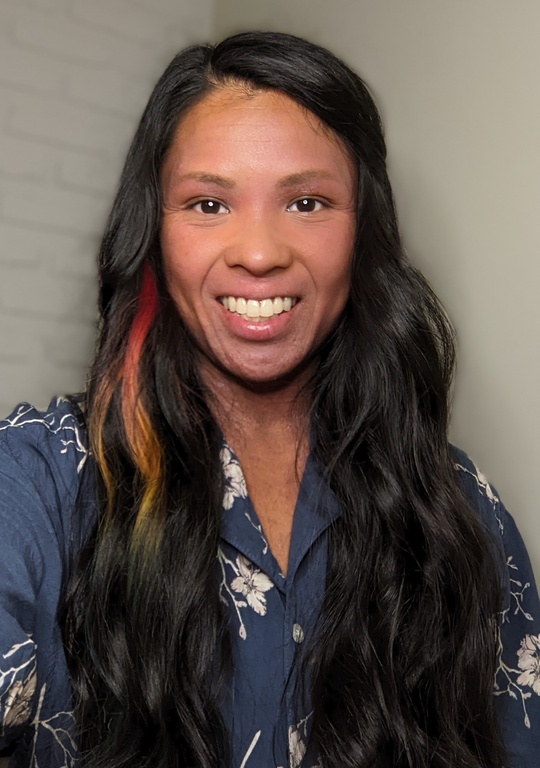
Lucienne Soriano is currently an Instructor at the Olson Centre for Health Simulation of NorQuest College where she was previously the Instructional Assistant of the Therapeutic Recreation program. Lucienne has experience working in various settings including long term care, day program, community outpatient as well as transitional care and is currently a CTRS. Lucienne enjoys trying new restaurants, attending community events, adventuring and thrifting. She is a spontaneous creative as well as a music and dance enthusiast. As the child of an immigrant parent from the Philippines, deconstruction and decolonization are areas of special interest to Lucienne and she strives to continue applying this lens in her personal and professional journey.
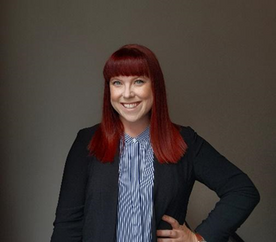
Jaclyn England is a Recreation Therapist and Instructor with the Therapeutic Recreation Diploma Program at NorQuest College. As the recipient of the CTRA Volunteer of the Year (2021) and Gonzaga Da Gama Memorial (2022) Awards, she is a compassionate leader who takes any opportunity to share her love of TR. Jaclyn has a passion for connection and has learned that making genuine connections can really broaden your positive impact on others. Using her knowledge from working as a Recreation Therapist in long-term care, day program, and as Recreation Therapist II in home care in the Edmonton Zone she utilizes storytelling to share her experiences with learners so they can envision the incredible impact TR has, and maybe have a laugh at the same time! Jaclyn lives with her family in Stony Plain and loves to travel, sing with her kids in the car, tap dance, play slow pitch, and get together with family and friends.
112– How to Apply the Flourishing Through Leisure Model in Practice: Pei-Chun Hsieh
Session Outline:
The Flourishing through Leisure Model (FTL) is a strengths-based model supporting recreation therapists in enhancing one’s leisure experiences in order to promote positive changes across the six domains of well-being, including leisure, psychological/emotional, cognitive, social, physical, and spiritual domains. In this session, we will explain (a) the purpose of practice models, (b) the conceptual foundations of the FTL model, (c) the key components of the FTL model, (d) the empirical evidence of the FTL model, and (e) the application of the FTL model in practice. Information regarding assessment tools, strengths-based program planning and implementation will be discussed. Additionally, we will engage the audience in discussing different program ideas and brainstorming how to build their program using the FTL model.
Objectives:
- Identify three reasons for using a model in guiding practice
- Describe two key differences between a deficit-based approach and a strength-based approach
- Discuss two ways to build your program based on the Flourishing through Leisure model
Session Bio(s):
Dr. Pei-Chun Hsieh is an Associate Professor in the Department of Recreation and Leisure Studies at Brock University. She also serves as Member-at-Large for the Research Awards for the Recreational Therapy Foundation to promote evidence-based practice in the field. Her research focuses on understanding the role of leisure in supporting individuals with chronic conditions in maintaining and enhancing their well-being and flourishing at different stages throughout their lives.
113 - The Covid Connection: How Rec Therapy Can Adapt & Thrive: Katie Vara
Session Outline:
Recreational therapy has always been about adapting and overcoming obstacles, sometimes on the fly. Covid-19 has presented many setbacks to practitioners but also a window of opportunity for rec therapists to grow, adapt, and thrive. This session will focus on facilitating RT in the community & through telehealth. These specific facilitation styles provide opportunities for practitioners to facilitate therapeutic sessions & achieve positive outcomes. We will discuss how to safely facilitate RT sessions in the community and how to facilitate telehealth sessions to achieve therapeutic outcomes. Discussions will also focus on the many ways in which evidence based practice plays a critical role in planning, justification & advocacy for the client, practitioner, & the profession at large.
Objectives:
- Create a covid-safe protocol for in-person sessions
- Identify at least 3 telehealth interventions & their therapeutic outcomes
- Identify at least 4 domains that can be targeted in a community-integrated session
Session Bio(s):
In 2010, Katie Vara earned her Bachelor of Science in Kinesiology—Exercise Physiology from the University of Texas at San Antonio and, in 2013, her Master of Science in Therapeutic Recreation from Texas State University. Working initially in long-term care, Katie quickly progressed to community integrated Recreational Therapy which culminated in 2016 in the formation of her company Caliber Therapies, LLC: a company with a dedicated mission to providing specialized therapies to all abilities across the lifespan. Katie is passionate about promoting the field of therapeutic recreation and it’s practitioners forward through education, advocacy, inclusion, and acceptance.
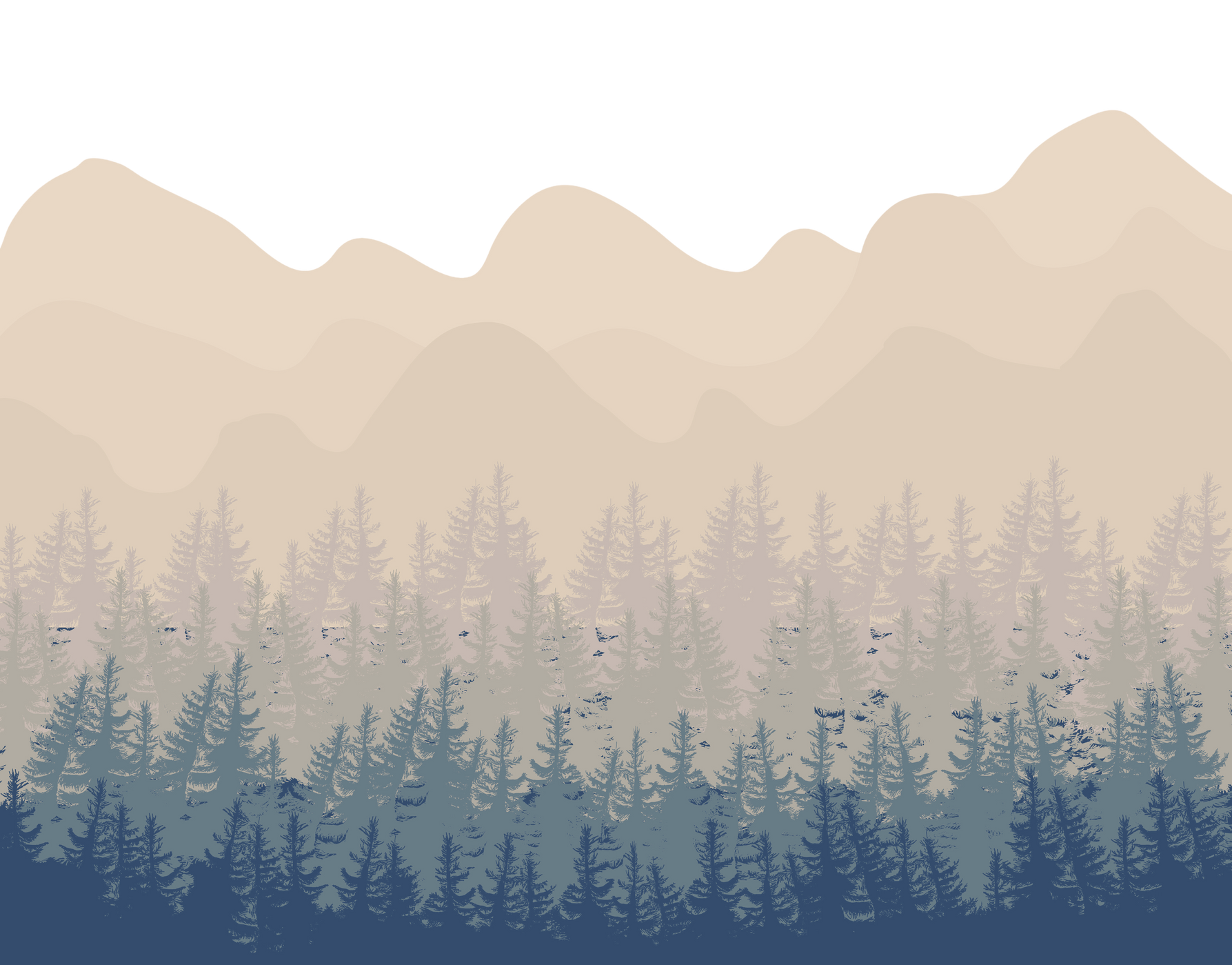
- CTRA Awards (7:30-8:30pm):
- Recognize and honor all of the amazing work that Recreation Therapists have done as a Discipline
- Mingle and shop as we stroll through the Vendor Exhibits and Silent Auction
- Enjoy a drink ON US!
- Wear your best Mountain Plaid

rocky mountain
mix & mingle
Spend the evening with us!
When: Wednesday May 10 7:30pm to 10:00pm
Thursday May 11th, 2023
201 – Opening Keynote
The Story of the Climb: An Intentional Map of Connection, Innovation, and Perspective: Bev Suntjens
Session Outline:
As we kick off our time together, you have arrived ready to learn, meet, re-connect, and grow. You are well-equipped with our map as a profession, telling a rich and vivid story of innovative practice, reflection, research, and knowledge sharing. Bev Suntjens will prepare you for the wonderful intensity and opportunities of the conference, by facilitating your intentional mapping of what you need to learn and who you need to meet, all while celebrating what you uniquely bring to the room. To intentionally climb – as individuals and as a profession – we will explore through the lenses of reflective practice, story-telling, and authentic professional connection. Whether this is your first CTRA conference or your twenty-sixth, this session will prepare you to climb, connect, celebrate, and make the most of your story at the 2023 CTRA Conference.
Objectives:
- To discover current research in reflective practice and professional networking (ADV)
- To explore historical and innovative concepts in therapeutic recreation services (FKW, ADV)
- To integrate reflective practice and conference themes into a professional learning/development goal (ADV)
Session Bio(s):

Bev Suntjens has been in the field of therapeutic recreation – as a student, practitioner, educator, or academic leader -- for over thirty years. As the founder of the therapeutic recreation program at NorQuest College, her greatest joy has been witnessing graduates make an impact on the development of the profession and in the lives of their clients. As a Vice Dean in Health Studies at NorQuest, Bev relies daily on her interdisciplinary collaboration skills and gives all credit to her foundation and passion as a recreation therapist. She is proud to serve as the current President for the Alberta Therapeutic Recreation Association. Bev loves to laugh, write, and share interprofessional education (IPE) research ideas and dog pictures. She is passionate about storytelling (and listening!) and is twice published in the Chicken Soup for the Soul series. Bev lives in Stony Plain, Alberta and her greatest achievements to date are the three young adults who call her ‘Mom’.
202 – Communities of Practice
Session Outline:
Do you leave conferences feeling motivated but unsure of how to put your newfound knowledge into practice when you return to your job? Grab a coffee and come chat with your respective CoPs for an informal session about the conference presentations you've already attended and the ones you're excited to go to in order to discuss ways to integrate lessons learned from the conference. We'll look at techniques to assist you to analyse and apply what you learn in subsequent sessions. Together, we'll come up with an action plan that will aid in integrating the conference's wealth of information and provide future direction for our CoPs.
Objectives:
- Review and identify sessions from the conference that are applicable to your practice
- Identify resources and steps to help maintain commitment to integrating conference content into practice
- Create a plan to integrate conference learnings into future practice
203 - Building Culturally Responsive Practice and Social Justice Perspective: Son Truong
Session Outline:
This session draws on the findings from the Therapeutic Recreation and Community Connections pilot project, which was conducted in collaboration with the Dalhousie University School of Social Work Community Clinic, to facilitate collective reflection and discussion on advancing the profession through enhancing culturally responsive practice, and social justice and anti-oppressive perspectives in TR. This session will describe the development and implementation of a TR internship and service delivery at the Clinic, with a focus on leisure education, leisure counselling, and advocacy to support the health and wellbeing of clients from diverse backgrounds.
Objectives:
- Gain a foundational understanding of cultural humility and identify three differences between cultural humility and cultural competence
- Describe three actions/practices of a culturally responsive practitioner
- Identify three tenets of a social justice and anti-oppressive framework in community healthcare
See session 110 for speaker information for Son Truong
204 - Therapeutic Recreation: Making a Difference in Chronic Pain: Annette Yunick & Shana Wandler
Session Outline:
Therapeutic Recreation is making a difference for individuals living with chronic pain through innovative and supportive aquatic and emotional expression interventions and collaboration with health care professionals to address pain management and quality of life. The effectiveness of chronic pain informed interventions has been validated through measurable outcomes including decreased signs and symptoms of pain, discomfort, anxiety and depression, and improvements in physical function including self-care, mobility, strength and endurance, usual activities, community and leisure participation and over all perceived health and well-being.
Objectives:
- Learn how therapeutic recreation develops chronic pain informed interventions.
- Learn how therapeutic recreation interventions teach strategies for pain management.
- Learn how to use and evaluate measurable outcomes for individuals living with chronic pain.
Speaker Bio(s):
Annette Yunick has dedicated her career as a Recreation Therapist for the past 30 years with Alberta Health Services and has served clients as a front-line clinician in long term care, acute care and community for 15 years. She successfully acquired the professional practice lead position with Alberta Health Services, south zone in 2007. Building on her knowledge, she has taken an active role in educating team members through continued best practice research. Through the design of standardized protocols and the implementation of guidelines for practice, she passionately shares her expertise and competencies with the team; currently she mentors and supports more than 65 therapeutic recreation staff in both their learning and clinical practice.
The importance of progressive and innovative programs has led her (with the assistance of the south zone TR team!) to the development and implementation of new therapeutic recreation practice in the community and expanding TR opportunities. She thrives on building collaborative and supportive relationships with community partners to ensure that there are positive recreation and leisure opportunities inclusive of all people’s abilities in southern Alberta. An active contributing member of ATRA, she has held local chapter executive positions and completed a two-year term as the Vice President of ATRA. In 2010 she was awarded Professional of the Year. Annette enjoys camping, water sports, hiking and spending time with family.
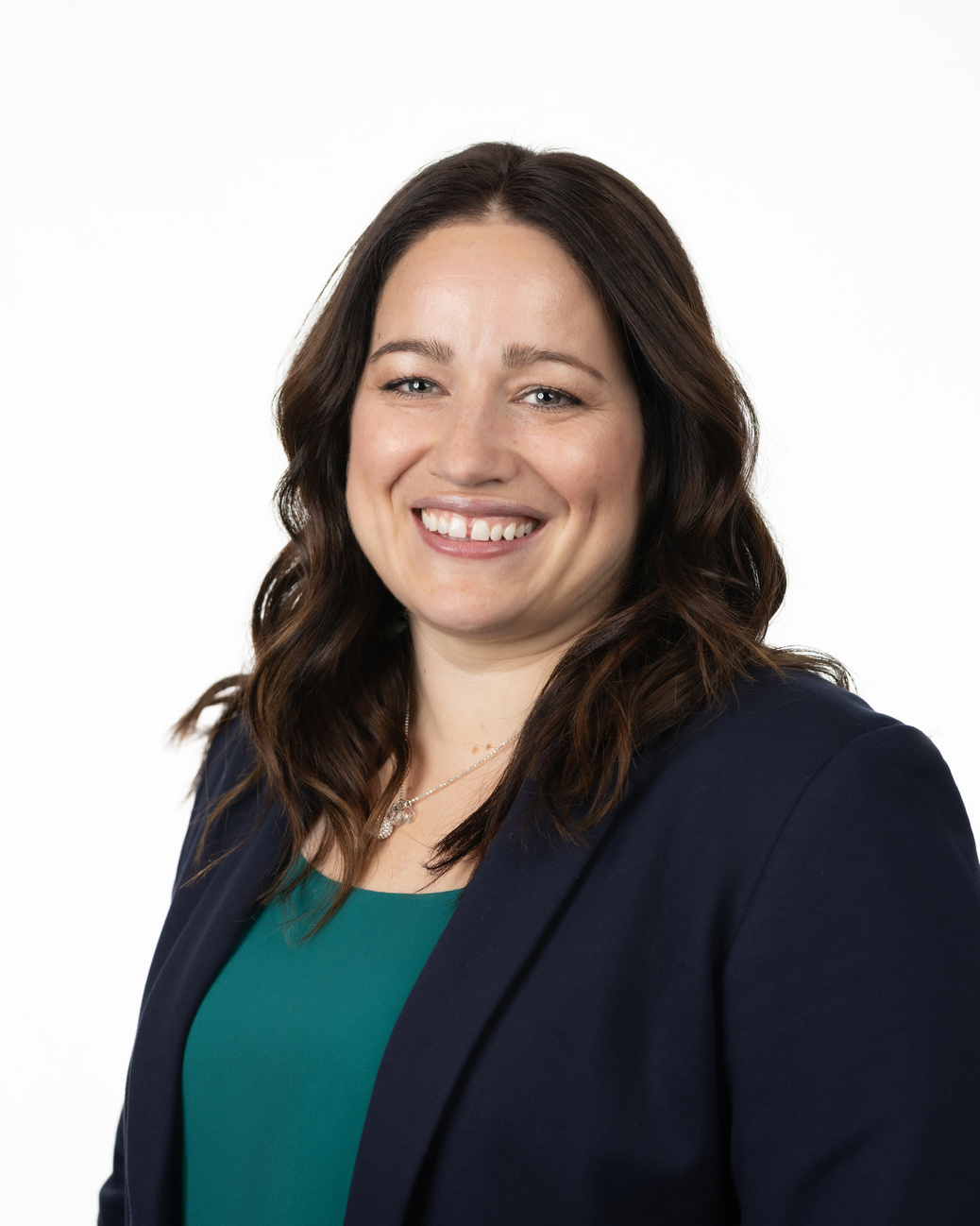
Shana Wandler Shana Wandler has worked in Therapeutic Recreation since 2015 and with Alberta Health Services South Zone team since 2016. Shana currently works as one of three South Zone Clinical Leads in a leadership role ensuring therapeutic recreation practice is evidence based, patient and family centred, and in accordance with policies, procedures, and standards of practice. Shana provides clinical leadership to ensure safe and efficient care and coordination of the assessment, treatment, education, and care of the patient. Shana participates in program development to ensure effective delivery of services, including the development of protocols, forms, education, and quality improvements initiatives. Finally, Shana supervises and supports therapeutic recreation services in long term care, acute care, supportive living, and community.
In the past, Shana served as the Professional Development Coordinator for ATRA’s Lethbridge Chapter and continues to be an ATRA, CTRA, and NCTRC member.
In her spare time, Shana enjoys being active playing ringette, skiing, and hiking with family and friends.
205 - Grant Writing and Resources: Exploring Recreational Therapy Foundation and More: Katie Vara
Session Outline:
We all hear about the importance of evidence-based practice within our field, but the process of finding this information can be confusing. Additionally, the process of finding and completing grants to engage in research can be intimidating for many. The Recreational Therapy Foundation has existed since 2009 as a way to promote and fund practitioner, student, and educator research in the field of recreational therapy. This session will review the history and current goals of the Recreational Therapy Foundation. Participants will learn about the annual research grant, past recipients of the grant, and will be walked through the application process. Additional resources for grant writing information for RT practitioners will be provided.
Objectives:
- Describe the mission, purpose and history of the Recreational Therapy Foundation.
- Complete the grant writing process for the foundation.
- Identify two funding resources for research grants.
See session 113 for speaker information for Katie Vara
206- Community Partnership to Support Recovery Journey: Carolyn Tivadar & Jenna De Guzman
Session Outline:
This evidence-based community partnership began in September 2021 to help support clients living with addiction and mental health. The project created a successful and sustainable partnership with Alberta Health Services and a local YMCA to remove client barriers to leisure and recreation and promote inclusion. This 10-week inter-disciplinary intervention focuses on using active living to improve self-efficacy and mental health. Join us in discovering how this project has made a significant impact on client health outcomes.
Objectives:
- Learn 3 standardized tools to measure client-centered outcomes
- Increase knowledge of reducing barriers to leisure and recreation
- Learn about optimal education to improve positive lifestyle changes
Session Bio(s):
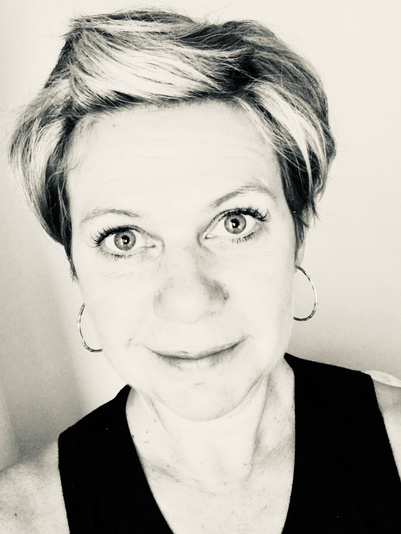
Carolyn Tivadar, BMgt, has been working as a Recreation Therapist for 16 years and has been dedicated to delivering quality and valued outcomes for her clients aged 18 to 104 years. She has a Bachelor’s degree in Marketing and holds an honours Diploma in Therapeutic Recreation Gerontology. Carolyn’s passion comes from her commitment to helping clients fill up their wellness cup through the power of the leisure experience. Her work is focused on using evidence-based research and leisure theory to develop clinical protocols and guidelines to achieve quality health outcomes. Carolyn is passionate about building capacity in the community and advocating for her clients with addiction and mental health challenges. Reducing isolation, stigma and promoting inclusion can bring hope and belonging.
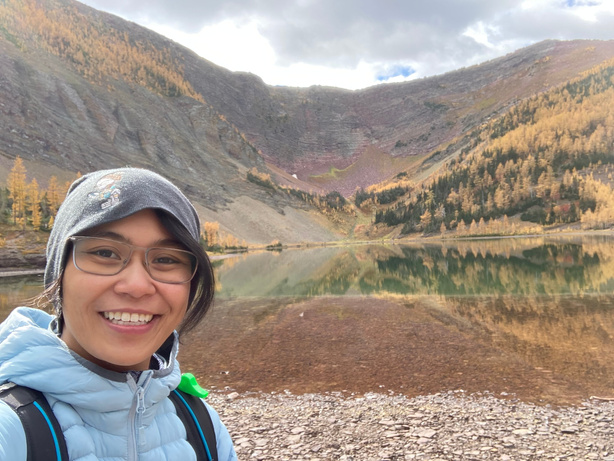
Jenna De Guzman is a registered occupational therapist with a keen interest in inclusion and diversity, chronic pain management, and positive psychology. She worked with the Addiction & Mental Health Adult Outreach Team in Lethbridge until the end of 2022, and now provides services in Haliburton, Ontario, supporting individuals living with dementia. She primarily works with individuals who have severe and persistent mental illness, cognitive impairment, and complex support needs. Jenna has contributed to the development of the occupational therapy role in addiction and mental health in Alberta Health Services South Zone and has assisted with the development of the Alberta Pain Strategy 2019-2024.
207 - Improving Health Quality of Life and Wellbeing through Participation in Adapted Recreation: Amanda Ervin
Session Outline:
This session will discuss findings from a research project conducted in Southern Alberta, that investigated health quality of life and wellbeing outcomes from individuals who participated in adapted recreation activities. This session will discuss different types of adapted recreation programs and will discuss some of incredible ways that two organizations allow the seemingly impossible to be made possible. Participants will learn about a variety of adapted recreation equipment, program adaptations and will hear about some current research on these topics. This session will also include details on: the benefits of being outdoors, benefits of adapted recreation, quality of life assessments, and the perceived benefits of adapted recreation from a variety of perspectives (clients, family members, caregivers and volunteers)
Objectives:
- Upon completion, participants will be able to discuss the WHO-BREF 26 assessment, the Warwick-Edinburgh Mental Well-Being Scale, the Social and Personal Relationship Scale and the importance of client assessment.
- Upon completion, participants will be able to identify at least 3 benefits of adapted recreation and ways 3 ways that recreation programs can be adapted
- Upon completion, participants will have enhanced knowledge on how to locate and participate in programs that provide adapted recreation/ Upon completion, participants will have enhanced knowledge about treatment teams and service providers implementing adapted recreation
Session Bio(s):
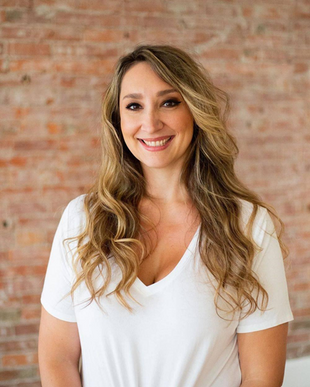
Amanda Ervin is a certified therapeutic recreation specialist (CTRS) and earned her bachelor’s degree in Therapeutic Recreation from the University of Lethbridge in 2020. Many years ago, she attended Lethbridge College and earned her diploma in Therapeutic Recreation- Gerontology. Amanda has had the fortune of working in a variety of settings, supporting many individuals with varying levels of need. Currently, she is pursuing a master’s degree at the University of Lethbridge and her research focuses on how adapted recreation therapy impacts quality of life, wellbeing, and social and personal relationships. Amanda is the Continuing Competence Director on the Provincial board for the Alberta Therapeutic Recreation Association. She is a certified Lakshmi Voelker Chair Yoga Teacher, a Drumtastic DrumsAlive instructor and has taken several courses in Motivational Interviewing. Amanda is a Research Assistant at the University of Lethbridge, and an instructor at Bow Valley College, for the Recreation Therapy Aide program.
208 - Giving Residents a Voice: Program Evaluation in LTC from a Dual Perspective: Magdalena Blaise & Kelly Leonard
Session Outline:
Under the administration of TR Service, this session will explore quality improvements and procedures regarding program evaluations in LTC. Specifically, this session will deliver theoretical constructs of quality assurance in program evaluations by discussing the implementation of satisfaction surveys and the process of disseminating the results. It will also explore how results from program evaluations are implemented in practice from a management and professional perspective through theoretical assurances and quality appreciation. This session will end with a discussion regarding application of change from program evaluation results, and adhering to the needs of residents to ensure best TR practices.
Objectives:
- Participants will be able to identify 3 theoretical assurances for program evaluation and 2 models for quality assessment based on a conducted literature review.
- Participants will be able to describe 3 strengths for conducting internal program evaluations from an operational and professional standpoint.
- Participants will be able to identify 3 aspects of change management, which can be used to ensure implementation of survey results.
Session Bio(s):
Magdalena Blaise obtained her BA in Applied Human Sciences with a specialization in therapeutic recreation from Concordia University in 2000. She then completed her Masters degree in health administration from the Université de Montréal in 2010 and has been a certified therapeutic recreation specialist since 2003. Maggie has worked with older adults for over 20 years in both professional and management capacities. She is currently the assistant to the Director of the Support for Elder Autonomy Directorate for the Montreal West Island Integrated Health and Social Services Center.
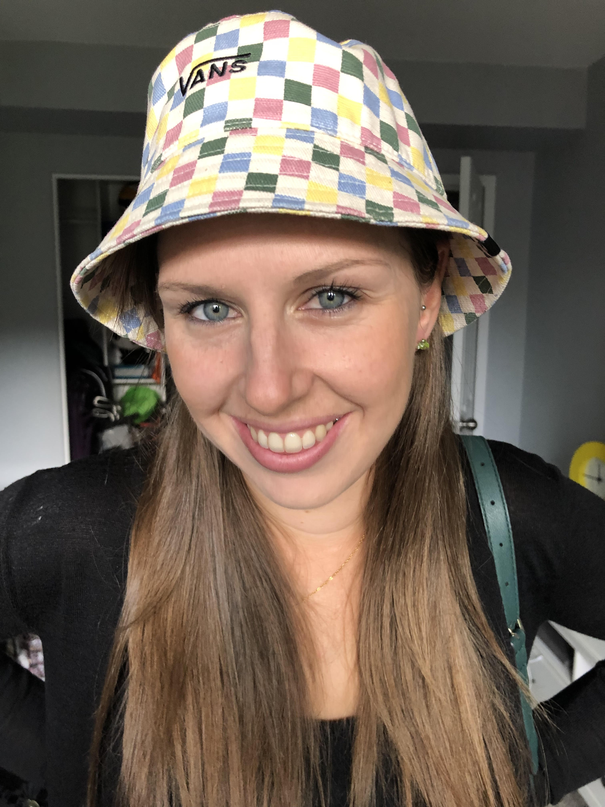
Kelly Leonard is a Certified Recreation Specialist practicing in Quebec in LTC. Kelly completed her undergraduate studies at the University of Waterloo in TR. She then went on to continue her education at Concordia University and completed her masters under the supervision of Shannon Hebblethwaite. Currently, Kelly works for the CIUSSS at Grace Dart Extended Care Center, a 150-bed residence in the east end of Montreal. She is very passionate towards improving the lives of her residents through recreation programs and special events. Kelly enjoys working alongside her managers and participating in projects that will help enhance the recreation divisions within the organization. She is here today to share the findings from a conducted literature review regarding program evaluations, and she looking forward to discussing how to ensure quality improvement strategies are implemented and continued in LTC.
209 – Partners, Teams, & Groups, Oh My!: Social Fitness Experiences: Emily Johnson
Session Outline:
In this session, attendees will learn more than 10 strategies, exercises, and activities for creating truly social fitness experiences through incorporating partner, team, and group work into a variety of fitness classes including cardio, strength, flexibility, and balance classes.
Objectives:
- Have learned more than 10 ways to create a more social fitness experience through the use of partner, team, and group work.
- Be able to incorporate bands and balls in partners, teams, and as a group.
- Be able to incorporate partner, team, and group work into cardio, strength, flexibility, and balance classes.
Session Bio(s):
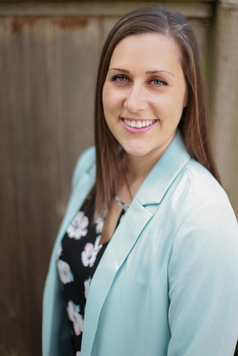
Emily Johnson is the Founder and Creative Director of StrongerU Senior Fitness. She is on a mission to innovate and elevate senior fitness globally by empowering recreation, fitness, and wellness professionals, and senior-serving organizations, to deliver high-quality senior fitness classes. Prior to launching StrongerU Senior Fitness, Emily was a Regional Manager of Recreation supporting a team of 49 Directors of Recreation working in Independent and Assisted Living Retirement Communities. Today she has trained over 800 senior fitness instructors across the US, Canada, Australia, and New Zealand primarily in senior living settings. Emily is an international trainer and conference presenter known for delivering dynamic sessions that give attendees “light-bulb moments” and tangible tools and resources to implement right away.
210 - The Centre of Excellence for Therapeutic Recreation in Continuing Care: Sienna Caspar & Brooke Ringuette
Session Outline:
Come to this session to discover how the Centre Excellence for Therapeutic Recreation in Continuing Care (TRCoE) inspires and advocates for quality TR services in continuing care settings! The TRCoE promotes research, innovation, and person-centred care by developing evidence-based, applied resources designed to support TR professionals. In this session, participants will learn how the TRCoE engages in knowledge translation and mobilization by offering e-learning opportunities to earn CEUs pre-approved by the NCTRC. This session will also introduce two online forums within TRCoE that provide a space to network, share resources and exchange programming ideas. We are excited to share how this not-for-profit organization ensures residents in continuing care experience a high quality of life through an enhanced sense of meaning, purpose, and joy!
Objectives:
- Participants will learn how to use the TRCoE to earn NCTRC Pre-approved continuing education courses and maintain professional competency.
- Participants learn how to promote best practices for TR in continuing care settings by contributing to the TRCoE forums.
- Participants will learn how to become active participants in the creation of evidence-based practice for TR in continuing care.
Session Bio(s):
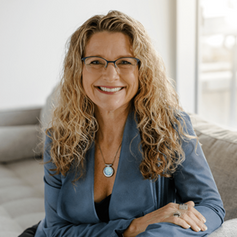
Sienna received a B.Sc. in Leisure Services—Therapeutic Recreation from the University of South Alabama in 1990. She has worked in long-term care facilities in both Canada and the United States for over 20 years as both a certified therapeutic recreation specialist (CTRS) and a consultant. She is the author of the MARRCC (Measurable Assessment in Recreation for Resident-Centred Care). In 2003 she was awarded the Clinician of the Year from American Therapeutic Recreation Association. From 2003 to 2007 she was a national trainer for the American Therapeutic Recreation Association's Dementia Practice Guideline for the non-pharmacological treatment of disturbing behaviours. Her research interests include organizational behaviour, leadership, teamwork, non-pharmacological treatment of behavioural and psychological symptoms of dementia, recreational therapy, and culture change. Currently, she is an associate professor at the University of Lethbridge in the Faculty of Health Sciences—Therapeutic Recreation program.
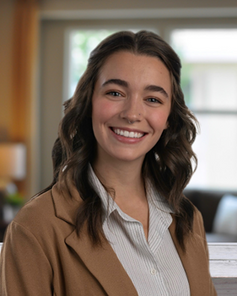
In 2020, Brooke Ringuette graduated from Lethbridge College with a diploma in Therapeutic Recreation - Gerontology. Currently, she is in her fourth year of study at the University of Lethbridge, working towards a Bachelor of Therapeutic Recreation with a minor in Health Leadership. Since 2016, she has gained hands-on experience in therapeutic recreation, primarily working with older adults in continuing care. She has over five years of experience in community-based settings, working with adults with disabilities and children with mental illnesses. Currently, Brooke is the Project Coordinator with the Centre of Excellence for Therapeutic Recreation in Continuing Care.
211 - Douglas College Student Research Study Tittle: Sexual Health and Intimacy in the Twilight Years: a TR Perspective:
Lo Oliveira
Session Outline:
Sexual health and intimacy among older adults living in long-term care (LTC) is a complex issue experienced by health care practitioners. Sexuality is considered a taboo topic among many staff, residents and families and concerns regarding sexual health practices often remain overlooked and unaddressed. As Therapeutic Recreation Practitioners, it is important to discuss the sexual wellness of older adults and recreation therapy best practices based on a holistic and person-centered approach to care. This student research discusses the main challenges that Therapeutic Recreation Practitioners working in LTC experience face when supporting residents’ sexual expression and intimacy.
Objectives:
- To learn about current literature on sexual health and intimacy in LTC
- To learn about the research method and participants, research findings and discussion of data collected in this study
- To learn about the limitations and recommendations of the study
Session Bio(s):
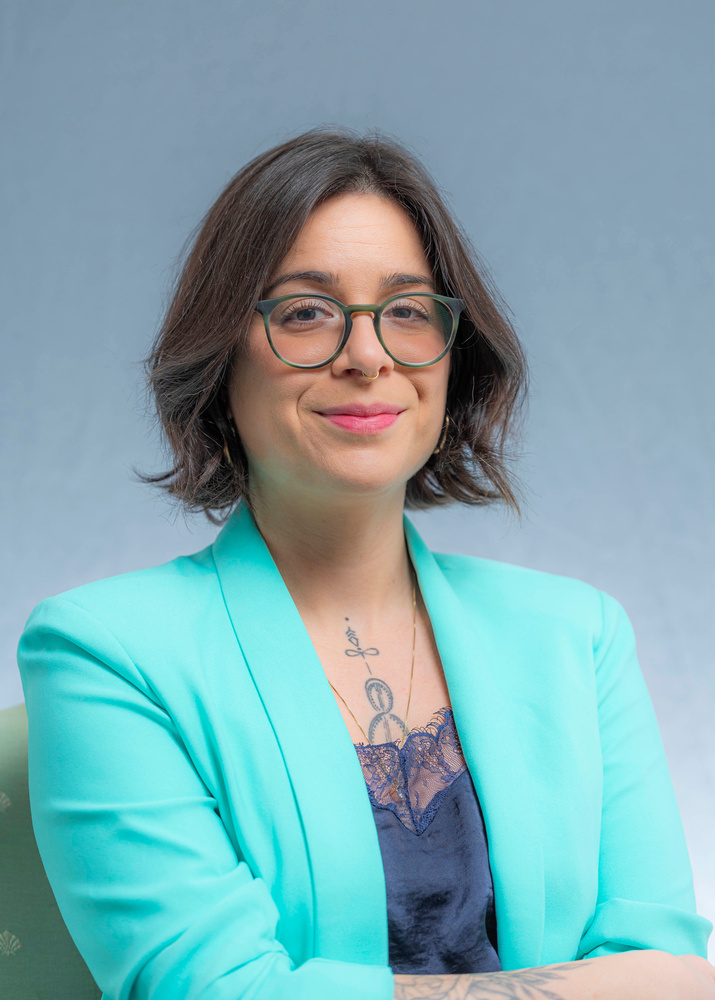
Lo Oliveira (they/them) is originally from Bahia/Brazil, where they graduated in Law in 2013 and first pursued academic research, before moving to Canada in 2014. In 2020, they graduated with the Therapeutic Recreation Diploma and returned to Douglas College to complete their Bachelor in TR. Since 2020, they have been working as a Recreation Therapist at Yaletown House LTC, as well as producing community-based inclusive and accessible public events in partnership with the Vancouver Mural Festival and Downtown Van BIA. In their leisure time, you can find them roller skating and jogging around Granville Island. Their passion for community-based research and community building moves them to continuously grow and learn new skills, connecting with the TR community and advocating for evidence-based and person-centered practices.
212 – The Role of Leisure in Older Adults Moving to New Homes: Implications for Therapeutic Recreation Professionals:
Kristin Prentice
Session Outline:
Older adults experience transitions in later life, including moving homes, which can lead to feeling a sense of loss. Leisure is known to be beneficial for managing transitions, but there is limited literature regarding how leisure can assist older adults moving homes. This session will discuss how a modified ethnography was used to explore how leisure related to moving homes for 12 older adults adapting to private dwellings in a midsized city in Ontario. The findings will describe how older adults can adjust to their new homes by engaging in leisure to maintain or re-establish identity, maintain and develop social connections, and create attachment to place. The implications for therapeutic recreation professionals, such as designing assessments and creating unique leisure opportunities for older adults moving homes will also be discussed.
Objectives:
- Participants will be able to list at least two new factors that should be taken into consideration when assessing new clients who have moved to a new residence.
- Participants will be able to list at least two strategies they can incorporate into leisure education sessions to assist their clients in overcoming challenging transitions.
- Participants will be able to indicate two ways in which the environment can shape their clients’ participation in therapeutic recreation programming
Session Bio(s):
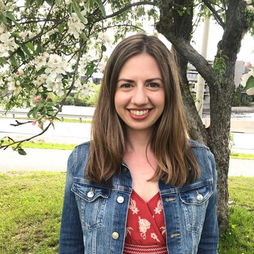
Kristin Prentice is a postdoctoral associate in the School of Physical Therapy at Western University in London, Ontario. Kristin has been working with older adults for over 14 years and was inspired to conduct both her master’s and doctoral research based on her time working as a Certified Therapeutic Recreation Specialist in the long-term care, hospital, and community sectors. She recently completed her dissertation at Western University with Dr. Carri Hand on the role of leisure in older adults moving to new homes. Previously, Kristin completed her master’s education at Brock University where she focused on exploring the perceived gerontological competencies of recreation professionals working in long term care homes in Ontario. Currently, she is working with a research team to develop strategies to recruit, retain, and revitalize the nursing workforce in the long-term care and home and community care sectors.
CANCELLED 213 – Lived Experiences of Persons with Disabilities during the COVID-19 Pandemic: An Analysis of Online Forum Posts: Alicia Kuhr
Session Outline: The pandemic has affected every aspect of life and contributed to increased levels of stress and anxiety in people with disabilities. In this study, online forum posts from Ability Online, an organization based in Toronto, Ontario that offers a virtual platform for young people with disabilities to connect with each other, were analyzed to explore how young adults with disabilities responded to the COVID-19 pandemic: their thoughts, views, and opinions between March and May 2020. The three major themes that emerged from the data are health and well-being, information seeking, and recreation and leisure participation. Based on the findings of this study, we will share the role and benefits of online communication platforms, coping strategies young adults with disabilities used during the start of the pandemic, and how their recreation and leisure pursuits were affected during this time. In addition, recommendations for therapeutic recreation professionals will be offered.
Objectives:
- Identify 3 benefits of using online communication platforms for young adults with disabilities
- Identify 3 coping strategies young adults with disabilities used during the pandemic
- Identify 3 barriers to, and strategies for, young adults with disabilities participating in recreation and leisure during the pandemic
Session Bio(s):
Alicia Kuhr is a second-year graduate student at Brock University, completing her Master’s degree in Applied Health Sciences with a concentration in Leisure Studies. Before starting her Master’s degree, Alicia graduated with honours from the Recreation Therapy Diploma program at Mohawk College, as well as from the Therapeutic Recreation Degree Program at Brock University. Alicia currently works as Recreation Therapist at St. Joseph’s Hospital in Hamilton Ontario, in the Forensic Psychiatry Program. Last year, Alicia became a CTRS. Alicia is passionate about promoting the field of therapeutic recreation through both her work and research. Alicia plans to continue conducting research in the future, in hopes to bring more evidence-based practice to the field of therapeutic recreation.
214 - Write it down!: Sharing Results from Two Scoping Reviews Exploring the Role of TR in Supporting Two Specific Populations: Christine Ausman
Session Outline:
This session will present findings of two scoping reviews that explored the role of therapeutic recreation in supporting two populations: persons with acquired brain injuries, and persons with complex disabilities. Results are organized using NCTRC job task domains, including assessment, planning and implementation, and evaluation of outcomes. Authors from both reviews include practitioners and researchers who will discuss how the reviews’ findings somewhat reflect current practice but also demonstrate the gaps in the literature. These findings suggest the need for 1) TR services in specific settings, 2) current examples of TR practice and outcomes with these populations, and 3) more connections between practice and research to encourage evidence-based practice.
Objectives:
- Delegates will be able to list a minimum of 2 assessment, programs, and outcomes of TR services supporting people with acquired brain injuries (as described in the literature).
- Delegates will be able to list a minimum of 2 assessment, programs, and outcomes of TR services supporting people with complex disabilities (as described in the literature)
- Delegates will takeaway 1-2 suggestions for how they can contribute to evidence-based practice and sharing of current TR practice.
Session Bio(s):
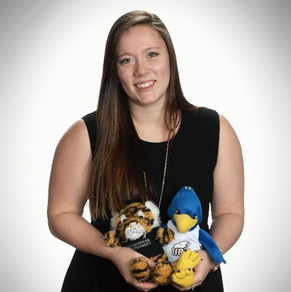
Christine is a PhD in Health student at Dalhousie University in Halifax, Nova Scotia. She completed her BSc Recreation (Therapeutic Recreation) and received her CTRS designation in 2018. Christine's passion for research and teaching led her to grad school where she explored the use of smartphones in leisure coping during the pandemic. Her current thesis focuses on the use of gamification in neurorehabilitation and the patient experience. Christine works as a research assistant, teaching assistant, and curriculum/accreditation support at Dalhousie, in addition to assisting with the development and facilitation of student-centered workshops focused on self-care.
215 - Infusing Wellness Opportunities into Integrated Youth Services in Canada
Jennifer Affolder, Matt Wenger & Teresa Campbell
Session Outline:
"Infusing Wellness Opportunities into Integrated Youth Services in Canada" examines leisure-based programs and thriving community partnerships that provide innovative health promotion strategies for young people with mental health and substance use concerns. This oral presentation aligns with task domains for foundational knowledge, implementation and advancement of the profession.
Objectives:
- To describe how Wellness Programs were implemented into IYS within Foundry, BC.
- Provide an overview of what the Wellness Programs are and who has accessed them since program inception over a two-year period.
Session Bio(s):
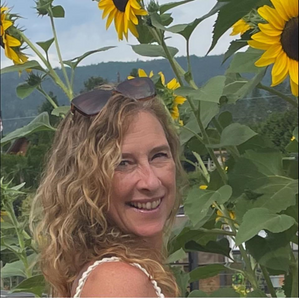
Jennifer Affolder is a passionate educator and changemaker who strives to inspire and empower others with kindness and compassion. She has over 30 years of clinical experience as a Recreation Therapist and has worked in various mental health, community and acute care settings. Jennifer has found her joy in teaching, as full-time faculty at Douglas College and as a Wellness Program Coordinator with Foundry. Jennifer's research interests include nature-based leisure and youth co-design collaborations. She graduated with a BA in Recreation Administration with distinction from University of Alberta, and a MA in Leadership- Health Studies from Royal Roads University. On a leisurely note, Jennifer loves being outdoors in all seasons- running, hiking, skiing and paddle boarding to name a few!
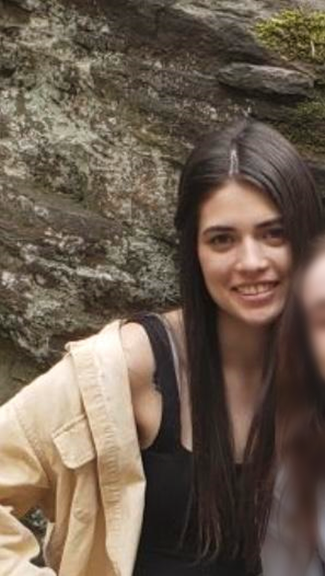
Teresa Campbell is in her third year of schooling at the University of British Columbia where she is pursuing a degree in psychology. Teresa was hired as a Youth Peer Evaluator with Foundry in December of 2020. Her role as a YPE in the Wellness Program has allowed her to develop man skills such as facilitating focus groups and interviews, presenting, coding transcripts, and working as a team with her fellow YPE's. In her free time, Teresa enjoys cooking, cleaning her house (she has recently become very inspired by cleanTok), and going on adventures with her best friend Sophie!
Matt Wenger is a Services Implementation Leader for Foundry. He has held various clinical and regional leadership roles in mental health and substance use services in British Columbia and is a clinical faculty member with the Department of Occupational Therapy and Occupational Science at the University of British Columbia.
216 - Exploring the Experiences of Young People in the Wellness Programs:
Jennifer Affolder, Matt Wenger & Teresa Campbell
Session Outline:
Exploring the experiences of young people and staff in the Foundry Wellness Program within integrated youth services in Canada" This oral presentation explores findings which impact self-reported health and social connections for young people, and relates primarily to advancement of the profession. Using a participatory action approach, a collaborative team was forms with youth peer evaluators and researchers.
Objectives:
- To identify two key features of a unique participatory action approach to qualitative research.
- To demonstrate understanding of the role of Youth Peer Evaluators (YPE’s) as part of a collaborative team.
- To discuss the impact wellness programs had on the self-reported health and social connections of young people.
See session 215 for speaker information for Jennifer Affolder, Matt Wenger & Teresa Campbell
217 - Therapeutic Recreation as a Pathway to Supporting Mental Health in Northern Canada: Practitioner's Perspectives:
Lauren Ray
Session Outline:
This session focuses on a subset of data from a community-based participatory research project completed in partnership with the Canadian Mental Health Association. This subset of data explored how the therapeutic recreation (TR) profession can support mental health in northern Canada, specifically in Yukon Territory (YT). Seven Certified Therapeutic Recreation Specialists (CTRS) participated in one-on-one semi-structured interviews, and data were analyzed using a process of content analysis. Residing in northern Canada presents unique contextual factors that can implicate mental health, including geographical isolation, access to and availability of mental health services, and challenging climates. Despite the known benefits of leisure and recreation in supporting mental health, scant evidence exists pertaining to the role of clinical TR services in northern Canada. This session shares practitioner’s perspectives on how TR services can support mental health in a northern context.
Objectives:
- Following the presentation, participants will be able to describe the role of TR in supporting mental health in a northern context.
- Participants will learn how to integrate a meaning-centered approach when working in a mental health setting in the north.
- Participants will gain exposure into the use of a participatory approach to research in a leisure and recreation setting.
Session Bio(s):
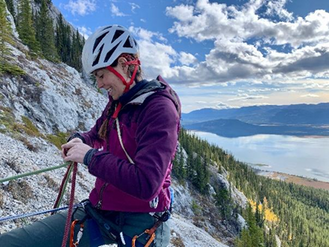
Lauren Ray is a Recreation Therapist and Acting Supervisor of Therapy Services at Whistle Bend Place Continuing Care facility in Whitehorse, Yukon Territory. She holds a Bachelor of Human Kinetics from UBC Okanagan, a Bachelor of Therapeutic Recreation from Douglas College and a Master of Science from the University of Alberta. Lauren’s graduate work focused on understanding how leisure and recreation can support women’s mental health during COVID-19 in a northern context. She continues to work with Dr. Tara-Leigh McHugh and Dr. Margie Davenport on describing the experiences of elite female athletes as they navigate pregnancy. Lauren is also the Director of Community Engagement with Climb Yukon, the Territorial Sport Organization overseeing the development of indoor climbing in Whitehorse and the building of the new climbing gym in Whitehorse.
218 – Peer Support for Young Stroke Survivors: Tiffany Morin
Session Outline:
This session is an overview of the research completed for my MSc degree at the University of Calgary. Research question: What is the experience of Young Stroke Survivors in a Community-Based Peer Support Group? As recreation therapists we often refer our clients to peer support groups in the community. I was curious about the actual experience of the participants and conducted a qualitative research project around that. Members of the Calgary Stroke Recovery Association’s Young Stroke Survivor group were interviewed via Zoom (during COVID). This project was conducted with the support and collaboration of the Calgary Stroke Recovery Association.
Objectives:
- At the end of this session, participants will be able to identify 3 benefits of peer support.
- At the end of this session, participants will be able to identify basic steps of a qualitative research project.
- At the end of this session, participants will set a goal to learn what peer support groups are in their communities and apply to their client population.
Session Bio(s):
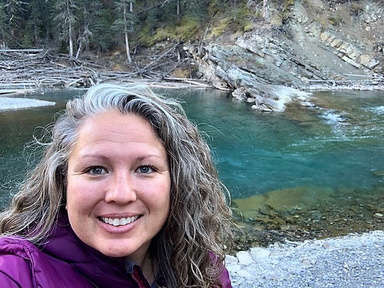
Tiffany Morin is a CTRS with Alberta Health Services, currently working in an outpatient neurorehabilitation program in Calgary. With 20+ years in the field, she has worked with a variety of populations and in four different countries. Tiffany is a graduate from the Lethbridge College Therapeutic Recreation (Gerontology) diploma program, and then transferred to the University of Calgary to complete a bachelor’s degree in Community Rehabilitation and Disability Studies. Tiffany is currently completing her MSc degree at the University of Calgary in Community Health Sciences, with a research focus on young stroke survivors’ participation in community-based peer support groups.
Tiffany has previously presented on reflective practice, standards of practice, COVID-19 and Community Re-integration, “I am interested in research … now what?”, as well as various poster presentations over the years. Tiffany is also an active member of the ATRA, previously serving on the BOD and as the 2020 and 2021 ATRA Symposium Co-Chair.
REC a palooza

Sign up when you register for the conference!
Wine Tasting & Scavenger Hunt
$30
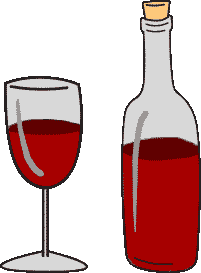
Updated Information on Dinner Theatre:
“From Jasper with Love”
Jasper Theatre Production
Thursday, May 11; Performance from 8:15pm - 9:15pm
Doors open at 7:30pm - Bar and Patio available prior to show
Location: Lobstick Lodge - Skyline lounge; 94 Geikie St
*Open to the public
$29 + tax; purchasing online tickets in advance is preferred @ www.jaspertheater.ca
Exercise with emma
When: Friday May 12, 6:45am - 7:15am
Where: Meet at the Dog House in the Lobby!
Session will take place in the Yoga Room
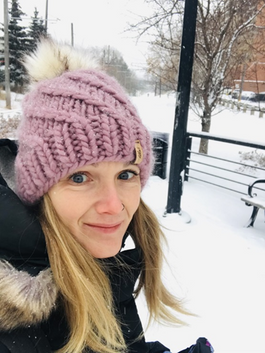

Hi, I’m Emma! I am a Recreation Therapist in the Addictions and Mental Health, and work with Young Adults ages 16-25. I help clients explore what leisure and recreation means to them and teach them skills to not only utilize leisure as a coping skill but also to help them in their self-identity. I also help to break down some of the barriers our client’s face in accessing resources and make the experience fun, enjoyable and personal. I love that no two days are the same! I’m active and on my feet, my car looks like a sports store by then end of the week, but most of all I love when clients start to connect the dots between how leisure impacts them in all different areas of their life. In my own leisure time, I do anything outdoors- I very much need to be outside on a daily basis! My go-to’s are crossfit, running and soccer, but anything that involves a little competition, movement or learning a new skill. I also enjoy a good book, chatting with friends around a campfire, and puzzles.
Friday May 12th, 2023
301 - The Impact of Varying Job Titles in Canada: Mary Dwulit
Session Outline:
Recreation therapy continues to be an unregulated profession in Canada and one of the negative outcomes of being an unregulated health profession is the inability to have title protection. Varying titles have been shown to have far-reaching impacts on the profession. Presenters will share findings from a national research study published in 2022 and provide education about the importance of regulation in field. Audience interaction, contribution, and discussion will be encouraged throughout.
Objectives:
- Attendees will be able to be able to name the different pathways to regulation in British Columbia.
- Attendees will be able to name three benefits of regulation in recreation therapy
- Attendees will be able to name five impacts of varying job titles in recreation therapy
Session Bio(s):
Mary Dwulit, CTRS is a Recreation Therapist with Fraser Health on the community Mental Health and Substance Use Rehab and Recovery team in Burnaby, BC. Mary is also the host of the podcast Recreation Therapy: A Canadian Perspective. Mary has two published academic journal articles and is passionate about regulation in recreation therapy.
302 – Committee on Accreditation of Recreational Therapy Education (CARTE): Orientation to Accreditation and Site Visitor Training: Jared Allsop
Session Outline:
This two-part session is designed to orient recreational therapy practitioners and educators to accreditation under the Commission on Accreditation of Allied Health Education Programs (CAAHEP) and the Committee on Accreditation of Recreational Therapy Education (CARTE). Part 1 will provide a general overview of the importance of academic accreditation and the history of CAAHEP-CARTE. Participants will be introduced to the specific standards and guidelines that are utilized to evaluate recreational therapy programs and the procedures academic programs follow when seeking and maintaining accreditation. Part 2 will focus on practical application of CARTE procedures for evaluating programs with emphasis placed on the site visit and the role of the site visitors. Interested participants will gain knowledge and resources needed to apply to be an accreditation visitor for the CARTE
Objectives:
Following part 1 of this session, participants will be able to:
- Describe the rationale for accreditation and at least three benefits of academic accreditation.
- Identify at least three basic procedures necessary in applying for accreditation and explain how to acquire materials for the application process.
- Differentiate between a standard and a guideline and identify at least four key elements to determine compliance with CARTE Standards and Guidelines.
Following part 2 of this session, participants will be able to:
- Identify at least three roles and responsibilities of CARTE site visitors. Name at least three steps in the process of becoming a CARTE accreditation site visitor.
- Describe at least four activities that are part of the CARTE accreditation site visit team’s review and evaluation procedure.
Session Bio(s):
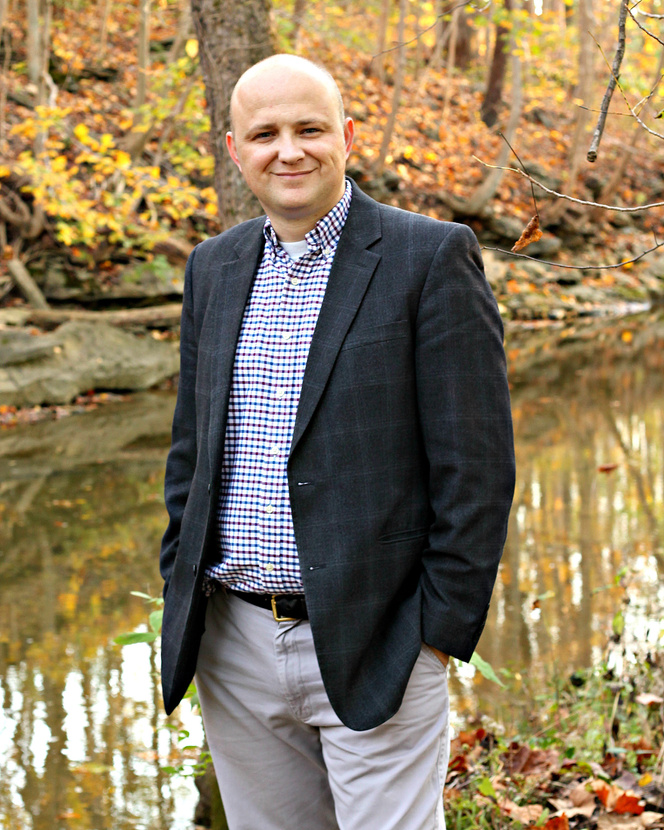
Jared Allsop, Ph.D., CTRS – is a clinical assistant professor and the associate chair of the Department of Health and Wellness Design, in the School of Public Health at Indiana University. He is currently serving as the Chair and Commissioner of the Committee on Accreditation for Recreational Therapy Education (CARTE). He received his undergraduate degree in Recreation Management & Youth Leadership with an emphasis on Recreational Therapy from Brigham Young University in 2007. He received his master’s degree in Parks, Recreation, and Tourism with a focus on Recreational Therapy from the University of Utah in 2012. He completed his PhD in Leisure Behaviors at Indiana University in 2018. He has worked as recreational therapist serving individuals recovering from substance abuse. He has also been the program director and lead recreational therapist at the Kostopulos Dream Foundation (KDF) working with individuals with physical and cognitive disabilities of all ages. While at KDF he led a wide range of therapeutic interventions including adaptive canoeing, adaptive fishing, equine therapy, aquatic therapy, adventure therapy, expressive arts, music therapy, therapeutic camping, leisure education, community reintegration, and experiential education. He has been at Indiana University since 2012 where he has cultivated his passion for teaching and best practices for recreational therapy education. The foundation of his teaching philosophy is firmly planted in his passion and commitment to the field of recreational therapy and to the education of future recreational therapists. His teaching philosophy stems from his experience in a variety of teaching settings including as a clinical professor in recreational therapy at Indiana University, as an academic supervisor to over 350 student interns and an agency internship supervisor to 26 recreational therapy interns. He has helped over 45 agencies develop/redesign their internship programs. His research focuses on utilizing active learning and constructivism principles to increase student learning and comprehension.
303 - Leisure Based Wellness Programs and Thriving Community Partnerships
Jennifer Affolder, Matt Wegner and Teresa Campbell
Session Outline:
This educational and interactive session will 1) provide an overview of Leisure-based Wellness Programs offered at Foundry, BC (integrated youth services for ages 12-24 years) within each of the five domains of wellness, and 2) highlight and discuss vibrant community partnerships that developed as an integral component of Wellness Programs, including Power to Be and BC Parks Foundation. The session specifically relates to several NCTRC job analysis areas including Foundational Knowledge, Implementation, and Advancement of the Profession.
Objectives:
- Identify the five domains of wellness and describe how leisure-based wellness programs target each of these domains, while complementing traditional health services for youth.
- Demonstrate how community partnerships can be integral to TR and wellness programming, promote access to nature, and exploration of land and water-based settings.
- Discuss the potential impact of low barrier, inclusive and accessible nature-based programming, strategies for evaluation, and qualitative data collection.
See session 215 for speaker information
304 - TimeSlips Creating Meaningful Moments with and for People with Memory Loss: Margaret Ushko
Session Outline:
TimeSlips is designed to support those looking to create meaningful moments with and for people with memory loss by creating value, meaning and purpose through creative engagement. Let your imagination soar. Start telling stories. TimeSlips opens storytelling to everyone by replacing the pressure to remember with the freedom to imagine. We can improve the quality of life of elders and the circle of care that surrounds them - family, friends, and care teams. This is an introduction to the power of TimeSlips by presentencing a creative and interactive workshop to teach the core concepts of TimeSlips approach.
Objectives:
- Participants will become familiar with the core concepts of TimeSlips - a creative storytelling approach.
- Participants will learn about research findings specific to the TimeSlips
- Participants will learn about the training and certification in TimeSlips - a creative storytelling approach.
- Participants will be guided in the creation of a story using the TimeSlips approach.
Session Bio(s):
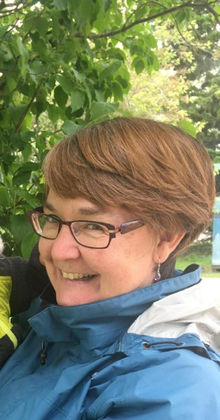
A native of Edmonton, Margaret Ushko is a Certified Therapeutic Recreation Specialist (CTRS) and has a Bachelor of Science Degree from the University of Alberta. After raising a family, she completed a Therapeutic Recreation Diploma from Lethbridge College and is a professional member of the Canadian Therapeutic Recreation Association (CTRA) and the Alberta Therapeutic Recreation Association (ATRA). She has been serving seniors citizens in the Edmonton area for many years. Her goal is to empower individuals to find joy in their lives regardless of the challenges they face. She is passionate about the value and benefits of therapeutic recreation for everyone. Some of the leisure pursuits that she enjoys include swimming, gardening, sewing, painting, music, and hiking.
305 - Using Photovoice as a Therapeutic Intervention: Dr. Pei-Chun Hsieh
Session Outline:
Photovoice is a participatory action methodology that can promote empowerment and critical consciousness in participants and has been used to investigate health and wellness issues in vulnerable populations. The techniques used in photovoice allow individuals to reflect on their surroundings, record visual life stories through photography, and bring individuals’ awareness to the issues. In this session, we will discuss how photovoice can be an effective tool with populations who are less verbal due to age, disability, differences in culture, and/or traumatic experiences that are difficult to express directly. We will offer practical guidance and a step-by-step process for using photovoice, engage the audience in activities to demonstrate how photography can become a medium allowing for the practice of social communication, and brainstorm how to use photovoice as a therapeutic intervention with clients. Potential barriers to building a photovoice intervention program in the setting will
Objectives:
- Describe two reasons why photovoice is a feasible intervention with vulnerable populations
- Identify three strategies for using photovoice in a group setting
- Discuss two potential benefits to creating a photovoice intervention program in your setting
Session Bio(s):
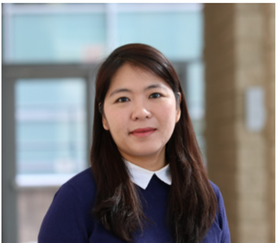
Dr. Pei-Chun Hsieh is an Associate Professor in the Department of Recreation and Leisure Studies at Brock University. She also serves as Member-at-Large for the Research Awards for the Recreational Therapy Foundation to promote evidence-based practice in the field. Her research focuses on understanding the role of leisure in supporting individuals with chronic conditions in maintaining and enhancing their well-being and flourishing at different stages throughout their lives.
CANCELLED 306 - The use of Leisure Education by Recreation Therapists in Mental Health Services: Anne Robins
Session Outline:
Participants will learn about the findings related to the study on leisure education in mental health services. We will discuss the leisure education models used and how leisure education sessions are designed and implemented.
Objectives:
- Develop an understanding of a leisure education program design and implementation
- Identify three outcomes measured in a leisure education program
- Identify one leisure education model used by recreation therapists in mental health services
Session Bio(s):
Anne Robins graduated from the University of Regina with a Bachelor of Physical Activity Studies in Adapted physical activity. Before coming to Sask Polytech, she was a Recreation Therapist for 23 years working in a variety of settings such as, Day hospital program, Long Term Care and community Mental Health and Addictions. Anne continued her education at the University of Alberta with Graduate certificates in Sport and Recreation Management as well as Indigenous Sport and Recreation and has recently completed her Masters of Arts, in Kinesiology, Sport, and Recreation at the University of Alberta. She was interested in learning how recreation therapists use leisure education in mental health services. She wanted to develop a better understanding of what leisure education models’ recreation therapists use, the purpose behind their use and how recreation therapists design and implement leisure education interventions in mental health. Anne has contributed to her profession through presenting at provincial and national conferences. She is the Past Chair of her provincial professional association and is currently a board member of the SK/MB Chapter of CTRA. She has sat on several committees and has engaged in conversation with government regarding the importance of recreation and leisure on the physical and mental health for residents of Saskatchewan. Anne believes in the benefits of recreation, for relaxation she participates with her family in Tae Kwon do, weightlifting, mountain biking and taking her dog for a walk.
307 - Leisure EDucation - The Role of Recreation Therapy in the Treatment of Eating Disorders & Dysfucntional Exercise: Lacey Paulsen
Session Outline:
Lacey Paulsen, CTRS, Recreation Therapist I at the University of Alberta Hospital’s Eating Disorder Program will explain the role of Recreation Therapy in treating eating disorders, explore what dysfunctional exercise is, how to determine whether your loved one/client/patient/resident struggles with it & what you can do to best support them in moving on to a life free from compulsive movement.
Objectives:
- Participants will be able to identify the different types of eating disorders & what dysfunctional exercise is.
- Participants will be able to identify how TR can be used in the treatment of eating disorders.
- Participants will leave session with at least 3 ideas of how to help their clients move more intuitively.
Session Bio(s):
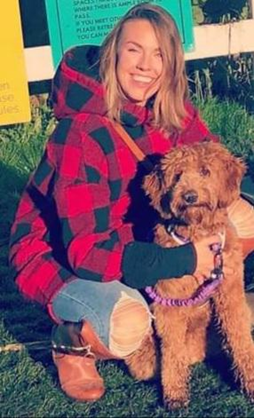
Lacey Paulsen is a Certified Therapeutic Recreation Specialist that has been working as the sole Recreation Therapist at the University of Alberta Hospital’s Eating Disorder Program for over 6 years. Lacey graduated from the University of Regina's Kinesiology Faculty with a BSc in Sport & Recreation Studies, majoring in Therapeutic Recreation and double minors in Human Kinetics & Psychology. She built the UAH EDP Recreation Therapy department from the ground up and has learnt much along the way. She has experience in a wide variety of athletics, including: competitive speed swimming, dance, basketball, running, weight lifting, crossfit, paddleboarding, curling, golfing, and is a Cerfitied Personal Fitness Trainer & Group Exercise Instructor through Fitness Alberta (formerly AFLCA). Lacey is passionate about educating others about eating disorders, dysfunctional exercise, and promoting intuitive movement & body neutrality. She hopes that she has been able to instill this in her colleagues & the many students she has supervised.
308 - Be the change you wish to see the in the workplace--Recreation Therapists as change agents! Sienna Caspar
In this session, participants will be introduced to the Relational Care Knowledge Hub. Relational care is an on-going process of building a person’s capacity to support another person in their growth and well-being and to nurture relationships. The principles of relational care are deeply embedded in the practice of Therapeutic Recreation—a profession that has a primary aim of enhancing quality of life through the development of meaningful relationships and experiences. As such, recreation therapists are uniquely situated to be change agents in healthcare as the industry moves towards the more consistent provision of person-centred, relational care.
Objectives:
- Participants will understand how the principles of relational care are embedded in the TR practice.
- Participants will understand how and why they are perfectly situated to be change agents in continuing care settings.
- Participants will know where to go and how to use resources that will assist them in leading culture change initiatives.
See session 210 for speaker information for Sienna Caspar
309 - Dementia Care Enabling Garden- Imagining, Creating and Sustaining Use of Outdoor Space: Caitlyn Cheyne
This session will look at the Senior Care Canada 2016 Award Winning Therapeutic Garden at the Wellington Terrace LTCH and discuss the development and implementation of enabling garden programs. We will discuss program ideas, implementation and applications for small spaces, as well as adaptations to meet varied capabilities. This session will also explore community engagement and creative funding options.
- Participants will gain a better understanding of the benefits gardening offers to residents in dementia care.
- Participants will leave with strategies to use throughout the development and facilitation stages.
- Participants will engage in discussion to address adaptive gardening techniques, small space gardening, creative funding and community engagement.
Session Bio(s):
Caitlyn Cheyne is an Honors graduate from Niagara College and a Graduate from Brock Universities Recreation and Leisure Studies program with a major in Therapeutic Recreation. Caitlyn obtained her CTRS certification in November 2015 and is also a Registered Recreational Therapist through TRO – Therapeutic Recreation of Ontario. Caitlyn works at the Wellington Terrace Long Term Care home in Fergus Ontario where she has worked for the past 7 years. The facility has 6 neighborhoods and 176 beds. Caitlyn’s neighborhood consists dementia care, mental health and complex care.
Caitlyn sits on the Program Advisory Committee for Queens College where she helps review and revise current curriculum for program development.
In her spare time Caitlyn volunteers with her work's “No One Dies Alone” program that ensures support to each resident until the end of life, as well as with community organizations to fundraise and support local children's involvement in sports.
316 - Standards of Practice: Dr. Lauren Cripps, Leanne Hughes, Patti Lanigan, Serena Maltais, Sherri Nelson
Session Outline:
Having Standards of Practice for any profession, is about identifying the values, knowledge and skills that are distinctive to that profession, and using this to guide the professional judgment and actions of the profession. This session will provide delegates with an overview of the evidence-informed process used to develop a revised set of standards for professional practice.
Using an appreciative inquiry approach, the experiences, knowledge and research that underpin the ongoing developments and change within the field were explored. Strengths and successes internal and external to our organization (CTRA) and profession were highlighted throughout the process. The proposed 2023 Standards of Practice, capture a common vision and direction, promote learning and innovation, and are intended to energize our profession towards collective action.
Objectives:
- By the end of this session, participants will be able to list at least 3, of the proposed 7 Standards for the 2023 update.
- By the end of this session, participants will be able to describe (broadly) the process that was used in the development of the 2023 CTRA Standards of Practice.
- By the end of this session, participants will be able to describe (brouadly) the highlights of the proposed changes to the Standards of Practice, and the justification for why these changes are important.
Session Bio(s):
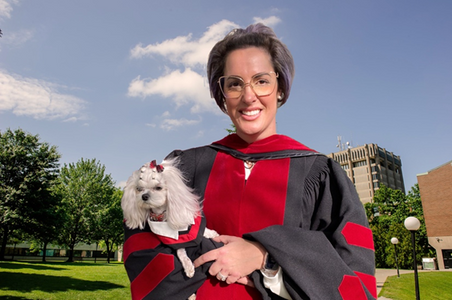
Dr. Lauren Cripps is a community engaged scholar who focuses on building authentic relationships and creating effective and meaningful programs through participant voice. Lauren is an active member of the CTRA board of directors, currently serving as the education director and President-Elect. Lauren chaired the development of the 2023 CTRA standards of practice and she is serving as the founding Editor for the Canadian Journal of Recreation Therapy. Lauren is an adjunct faculty member at Brock University, teaching in the Concurrent Education and Master of Education programs. Lauren is also a faculty member at Georgian College where she led the development of the Interdisciplinary Mental Health Practice post-graduate program. Outside of her professional pursuits, Lauren is a proud mother to Nyla, Emma, Willa, and Luca, who she attributes as her greatest accomplishment. She is well known for her love of animals and spent the first decade of her ‘adult’ life as a registered veterinary technician and passion for animals continues to help her blur the lines between work and play. Lauren identifies as a neurodivergent woman, with indigenous roots, and is proud to explore the world of teaching, learning, life, and love with her small but mighty service dog “Sophie”.
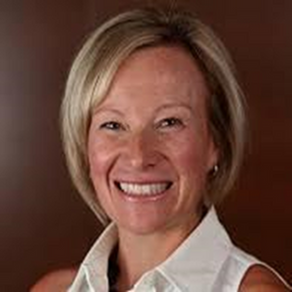
Leanne Hughes holds a Master’s degree in Education and is currently the Professional and Education Leader at Sunnybrook Health Sciences Centre in Toronto. She has a passion for Quality Improvement in the areas of Behaviour Support and Senior Friendly Initiatives. She has spent many years of her career as a Recreation Therapist in long term care. She is also an educator.
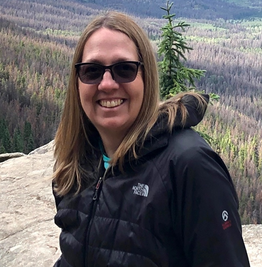
Patti Lanigan – Biography for CTRA Conference 2023 - Standards of Practice Session
I have worked my entire and lengthy career in Northern Alberta, where I was born and raised. I have been employed as a recreation therapist in Continuing Care (in Alberta Health Services) since starting in this profession. In 2012, I became the Recreation Therapy Professional Practice Lead (PPL) for the North Zone of Alberta Health Services in addition to working as a recreation therapist. I have been fortunate to find a career that I am still passionate about and continue to learn and grow as a clinician and leader. I have had the pleasure of working and playing in Jasper for the past 13 years.
I have been a CTRS since 2012 and in 2017, added the Specialty Certification in Geriatrics to my credentials. I was privileged to serve as President of the Alberta Therapeutic Recreation Association (ATRA) from 2014 – 2018. In 2017, I was honoured to receive ATRA’s Distinguished Service award. I have been a presenter and co-presenter at conferences in Alberta and across Canada and have regularly served on committees that help to advance our profession.
Some of my favourite leisure interests include reading, gardening, mountain biking, kayaking, X-C skiing, walking and exploring nature in this beautiful national park with my family, friends and Golden Retriever, Lucy.
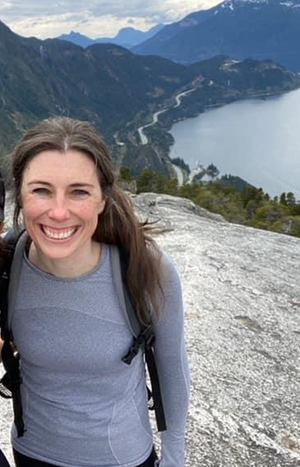
Serena Maltais, MRSc, CTRS has a Bachelor of Therapeutic and Inclusive Recreation from Brock University and her Masters in Rehabilitation Science from the University of British Columbia. Serena is the Regional Practice Leader for Recreation Therapy in Vancouver Coastal Health. She has always been passionate about advancing recreation therapy practice and has been actively engaged with the British Columbia Therapeutic Recreation Association (BCTRA), the National Council for Therapeutic Recreation Certification (NCTRC), and recently the Committee on Accreditation of Recreational Therapy Education (CARTE). Serena resides in Port Moody, British Columbia and in her spare time enjoys skiing, hiking, paddling, and camping with her husband and two sons.
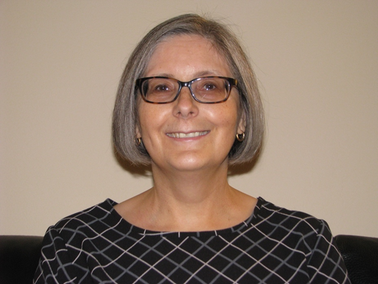
Sherri Nelson is the Professional Practice Manager for Recreation Therapy for the Saskatchewan Health Authority, based out of Saskatoon.
Prior to this role, she worked in a P/T Recreation Therapy Practice Lead role for the former Saskatoon Health Region and continued to practice P/T as a clinical Recreation Therapist on Physical Medicine and Rehabilitation at Saskatoon City Hospital.
She feels blessed to have worked as a clinician in the Recreation Therapy field for the past 30 years with varied populations and in a variety of settings including Rehabilitation, Psychiatry, Youth Services and Services for Older Adults. Her background includes a Bachelor of Arts in Recreation and Leisure Studies from the University of Alberta and she holds her Certified Therapeutic Recreation Specialist (CTRS) credential. Beyond her role as a Recreation Therapist, she has worked as a Distance Education Instructor for the TR Diploma program at SK Polytechnic. Additionally, she served terms on the CTRA SK/MB Chapter as North Central SK rep and Prairie Director for the Canadian Therapeutic Recreation Association. Sherri is passionate about the Recreation Therapy profession and committed to advancing the profession in SK.
311 - Making the Case for Adversity Informed Care in Therapeutic Recreation: Colleen Deyell Hood
Session Outline:
Most, if not all, clients served in therapeutic recreation have some experience with adversity. For example, they either come to our service with trauma in their past or are currently experiencing trauma in the face of acquiring illness or disability. These experiences of adversity impact clients' ability to reap the benefits of our services and/or to move towards greater well-being. This session will provide an overview of the impacts of adversity on clients and will end with a framework for adversity informed care in therapeutic recreation services.
Objectives:
- Participants will be able to define the terms adversity, trauma, and loss.
- Participants will be able to identify three different client responses to adverse experience.
- Participants will be able to identify three characteristics of adversity informed TR services.
Session Bio(s):
Colleen Deyell Hood, Ph.D., RP, CTRS is a professor in the Department of Recreation and Leisure Studies at Brock University in St. Catharines, Ontario Canada. Her areas of interest and expertise are therapeutic recreation professional practice, mental health and well-being, and strengths-based TR practice. Dr. Hood is the co-author, with Dr. Carruthers, of the Leisure and Well-Being Model. Dr. Hood is also a Registered Psychotherapist in the province of Ontario and she manages a small private practice. Dr. Hood and Dr. Carruthers are currently completely a new book for TR professionals entitled Facilitating Client Change in Therapeutic Recreation: A Strengths-Based Perspective.
CANCELLED 312 - Private Practice in TR - Building B.O.L.D (Balanced Outdoor Learning and Discovery) Program: Jackie Greenlee
Session Outline:
B.O.L.D Nature Therapy and Forest School Programs provide children and youth with large amounts of time in natural outdoor settings where they can learn, discover and explore. It is the hands-on interactive approach to learning and development that sparks imagination and unlocks a child’s creativity. Our Therapeutic approach to this type of programming allows us to use a variety of engaging recreation and leisure activities, to develop, maintain or improve physical, mental, social and emotional wellbeing. Come and explore the how we created B.O.L.D Programs and the process from start to finish. Walking you through our vision, program development and the successful programs we run today.
Objectives:
- Participants will gain better understanding of obtaining insurance and licenses for Private Practice
- Participants will learn a variety of ways to advocate and educate the public of TR
- Participants will be able to identify a variety of ways to research for unique client population.
- Participants will gain an understanding of creating evidence based practices.
- Participants will learn ways to create evaluations specific to client populations.
- Participants will be able to identify facilitating styles – Modelling, Mentoring & Leading
Session Bio(s):
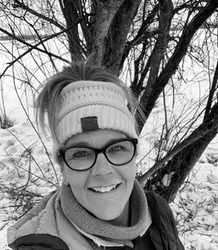
Owner of Balance RT Consulting Ltd. and Registered Recreation Therapist Jackie Greenlee graduated from Mount Royal College in 1999, and has been working in the field of Therapeutic Recreation ever since. She has had the opportunity to work with a variety of populations but found her passion for working with children and youth when she started a family of her own. She began the journey of creating a Therapeutic Recreation Private Practice in 2014,and in 2016, Balance RT Consulting Ltd. was formed. Jackie has completed her Forest School Practitioners Course through The Child & Nature Alliance of Canada, and is now a certified Forest School Practitioner.
Jackie enjoys staying active by coaching her three daughters in both hockey and baseball and she also enjoys playing golf with her husband and daughters at their family owned Golf Course. Jackie’s love for the outdoors came from summer camping trips throughout her life and growing up on a farm. She now spends time with her family hunting, fishing, camping and enjoying their 16 acre property just outside of Drayton Valley. Recreation and leisure are an important part of a healthy lifestyle and she works hard to educate her children on the importance of balance in their lives.
313 - Enhancing Social Connectedness in LTC: Impact of Reconnecting with GENIE: Nicole Brander & Michelle Sharpe
Session Outline:
Social relationships and the ability to connect are imperative for overall mental health, emotional wellbeing and a sense of feeling connected. Those who reside in Long Term Care may find it more difficult and have fewer opportunities to maintain social connections with family and friends. The COVID-19 pandemic has heightened the awareness of the urgent need for a simple-to use technological platform that older adults in continuing care can use independently to maintain connections with friends and family. The GENIE communications platform was developed to help older adults living in supportive care maintain social connections with their families and community, without significantly adding additional workload to care-providers and frontline staff. In this presentation, we will discuss the journey of the development of the GENIE and its impact on residents in care.
Objectives:
- Understand social isolation and the impact of social isolation on residents in Long Term Care
- Evaluate the impact of the GENIE in Long Term Care on residents and families: Reviewing pre and post survey results
- Optimize the use of technology to Improve Quality of Life for Residents in Facility- Based Continuing Care
Session Bio(s):
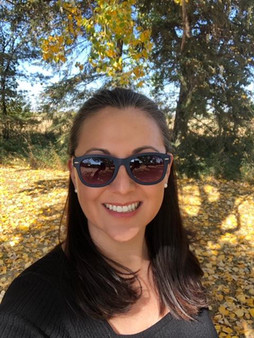
Nicole Brander completed her degree in Recreation and Leisure Studies for Special Populations at the University of Alberta, with her first two years in the Recreation Administration University Transfer Program at Red Deer College. She is a registered member and has been actively involved in ATRA and the CTRA. She has also met the NCTRC’s requirements to use the designation of Certified Therapeutic Recreation Specialist.
Nicole is currently volunteering on the ATRA Board as the Education Director and is the proud recipient of the Professional of the Year Award in 2020 and the Innovative Practice Award in 2022.
Working with seniors and best practices in Dementia Care has always been her passion. She was the first in Alberta to be certified in Music & Memory, the first in Western Canada to trial an ABBY and has been fortunate to be trialing the GENIE throughout the pandemic. She has additional certifications as a Psychogeriatric Resource Consultant, a Dementia Behavioral Specialist, and has been trained to coach Gentle Persuasive Approaches, Supportive Pathways and the Best Friends Approach.
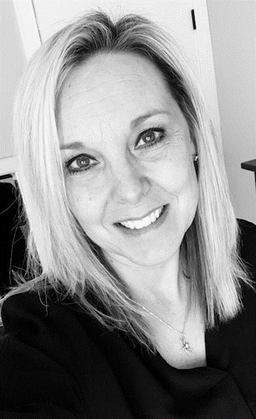
Michelle Sharpe has been employed as a Recreation Therapist with Alberta Health Services for 25 years. Throughout my career I have had the pleasure of being an integral part of interdisciplinary teams providing therapeutic recreation to all ages and populations. I have had many rewarding experiences as a recreation therapist including; 6 years at Halvar Jonson Centre for Brain Injury in Ponoka, Stroke Rehabilitation at Red Deer Hospital for 11 years; as well as Clinical Lead working in Acute and Palliative Care. I am currently the Professional Practice Lead for Recreation Therapy in the Central Zone, and began this exciting challenge in 2017 providing practice support for therapists and supporting Allied Health Managers in all service streams. I have been an ATRA member since 1998. This year I am the proud and honored recipient of the Distinguished Service ATRA Award recognized for demonstrating a commitment to excellence through advancing TR Practice.
314 - Answering the Call: Navigating the Role of Therapeutic Recreation in Person-Centre Behaviour Support: Leanne Hughes
Session Outline:
The steady increase in patients with responsive behaviours/personal expressions in acute care and long term care has resulted in the need for additional support in order to ensure safety. This presentation outlines 3 initiatives (1 Research and 2 Quality Improvement) implemented at a large health sciences centre in Toronto: highlighting the the role of Therapeutic Recreation in alleviating the high demand for Observers, increasing understanding of Person Centre Best Practices related to responsive behaviours as well as improving quality of life.
Objectives:
- Identify current situation in health care related to the increase demand for Behaviour Support expertise and practice related to Therapeutic Recreation
- Learn and discuss 3 evidence-based initiatives implemented by Recreation Therapists at at Health Sciences Centre related to behaviour support.
- Identify and discuss at least 2 new ways to infuse person-centred behaviour support practices into one’s own therapeutic recreation practice.
Session Bio(s):
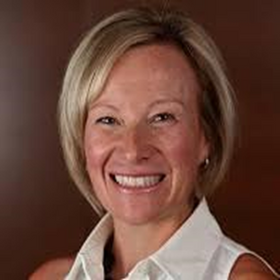
Leanne Hughes holds a Master’s degree in Education and is currently the Professional and Education Leader at Sunnybrook Health Sciences Centre in Toronto. She has a passion for Quality Improvement in the areas of Behaviour Support and Senior Friendly Initiatives. She has spent many years of her career as a Recreation Therapist in long term care. She is also an educator.
315 Closing Speaker – Conference Topic & Summary:
Thinking of Medicine, Therapy and Healing in terms of the Medicine Wheel; Spiritual, Mental, Physical, Emotional: Matricia Bauer
Session Outline:
Indigenous healing is a combined system of Spiritual, Mental, Physical and Emotional. How do we integrate our practice with these combined systems and why is it important? True therapy and healing are more than a physical practice, how can we decolonize our spaces and indigenize our practice? How can that help us and our patients?
Objectives:
- Learn the definition and the application to applying this concept to their personal lives, the lives of their patients, and their practice.
- Better understand the concept of Allyship and support of the Indigenous community in both conceptual practice and personal practice
- Combining the Medicine Wheel into a more wholistic practice: participants will understand what the medicine wheel is, how it has been used in Indigenous practice and how it can be utilized as a wholistic tool in the practice with Therapy
Session Bio(s):
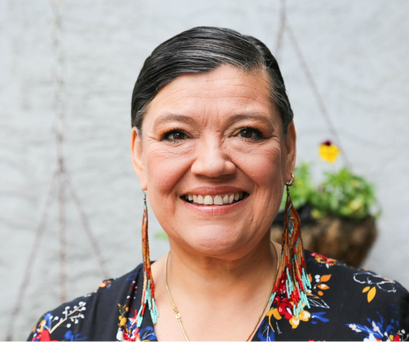
Matricia Bauer - I am an Indigenous storyteller, drummer, singer, and educator. I share my culture, stories, and song through an indigenous lens. I subcontract through various companies in the Jasper area primarily, but do contract work all through Alberta, Canada, Internationally and all year round under Warrior Women. I highlight indigenous tourism and education. I am comfortable in a classroom, boardroom, tipi, and the great outdoors. My goal is to Indigenize the world one drum beat at a time.
The Conference Commitee
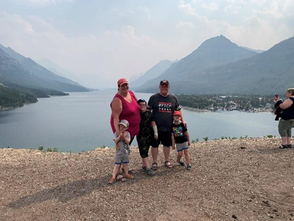
I am Pam Russ and I am one of the co chairs for this conference. I have been working as a Recreation Therapist for Alberta Health Services for 17 years with the majority of my career at the Glenrose Rehabilitation hospital in Spinal Cord and General Neurology. I have recently started at Norquest College as a casual instructor supporting the Therapeutic Recreation Diploma program. My current leisure activities revolve around my kids and I can often be found at the hockey rink, soccer field or swimming pool. When I do get some time for myself I like to read, bake and ride my horse. This picture was taken in Waterton National Park, but Jasper is our favourite place to visit. We will often take a day trip to Jasper where we love to walk around town, head up to Pyramid lake, and stop for a swim at what we call our secret spot. I am so excited to have all the conference attendees visit and explore my favourite place. Welcome to Jasper Alberta and the CTRA Conference.
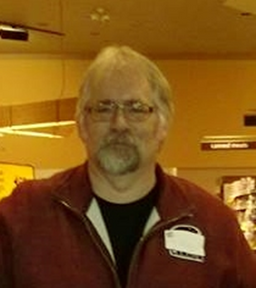
Glenn Skimming works as a Recreation Therapist II in Edson and Hinton, and coordinates two Adult Day Programs. Glenn also supports clients living in a lodge setting in Edson by supporting them to connect with their community. Glenn is an active member of his provincial organization and considers his being a Recreation Therapist an honor and continues to encourage individuals to make informed leisure choices. Glenn was a Transit Operator for almost 24 years, and during this time went to the University of Alberta and Graduated with a BPE in 2001. Glenn has worked in Adult Day Support programs, worked in Supportive Living and Long Term Care, has worked and continues to work in the community building partnerships with community organizations and clients he supports. Glenn loves to cook for family and friends, enjoys camping, and spending time with family and friends. He and his wife have 3 Grandchildren they love to spoil, and have two cats and two dogs that keeps them very busy.
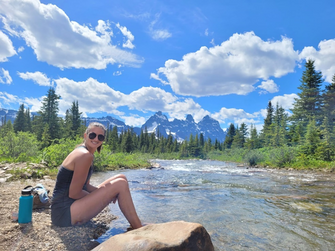
My name is Lisa, and I have been a Recreation Therapist in Edmonton for seven years. I enjoy many outdoor activities- hiking, backpacking, kayaking, and swimming in very cold lakes and rivers! Jasper has always been one of my favorite places to travel, as it offers so much beauty and opportunities for adventure. This photo was taken in Tonquin Valley; a 43-kilometer trek with amazing views and many mosquitos!
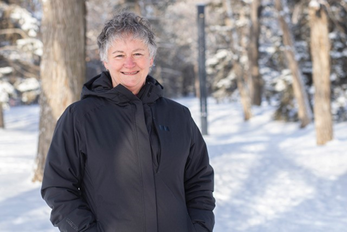
Deanna LeSage is currently a Recreation Therapist clinical lead in Community Mental Health & Addictions Young Adult Services working in Edmonton. Previous work experience includes 30 years of providing recreation therapy services to young offenders, adult forensic and acute psychiatry clients. Deanna has served on both the Alberta Therapeutic Recreation Association and the Canadian Therapeutic recreation Association board of directors. Deanna has been the recipient of several recreation therapy awards including both the Alberta Therapeutic Recreation Association and Canadian Therapeutic Recreation Association Professional of the Year Award in 2007 and 2010. Leisure interests include biking, hiking, swimming, snowboarding, yoga, volunteering at Edmonton Humane Society and spending time with family.
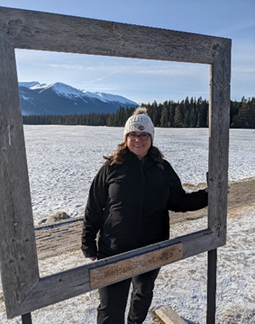
Nicole is originally from the East Coast. I have been working in therapeutic recreation for 14 years. Currently working in long-term care in rural Alberta, a member of ATRA, CTRA and I am CTRS certified. I have enjoyed working on planning committees for both provincial symposiums and national conferences. I feel the benefits of this volunteer position are endless. Not only are you meeting new people but you have many opportunities for learning new skills and processes. I love living so close to the mountains and challenging myself with new activities, like hiking up in the mountains and stand up paddle boarding in some of the most beautiful lakes. I look forward to catching up with some familiar faces and meeting some new people at this year's CTRA Conference in beautiful Jasper, Alberta.
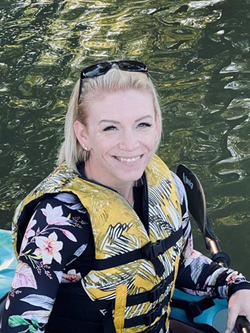
Jodie is originally from southern Ontario. She has been working in Recreation Therapy since graduating from the University of Waterloo in 2003. She also serves on the ATRA Board of Directors. Jodie has worked in Neuro Rehab, Mental Health & Addiction, Long Term Care and Pediatrics throughout her career. Jodie recently started a position as Recreation Therapist – Advanced Practice Role at the Glenrose Rehabilitation Hospital, and prior to that, was at Alberta Hospital Edmonton (AHE). Jodie spends a lot of her time playing and refereeing ice hockey, as well as relaxing with her Labrador Retriever (Abby), her friends, family, and her partner David. She recently traveled to Naxos in the Greek Islands, but always loves coming back home to Edmonton! Jodie is looking forward to traveling a few hours south to Jasper in May to welcome delegates to the first in-person conference CTRA has hosted in several years! Let’s Climb, Connect, Celebrate!
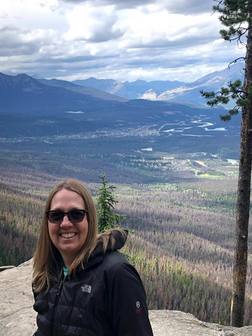
Patti began her career working in LTC in her hometown of High Prairie, a community in northern Alberta. After 22 years, she accepted a new challenge as the Recreation Therapy Professional Practice Lead (PPL) for the North Zone of Alberta Health Services, in addition to a small FTE as a recreation therapist. Shortly thereafter, her family moved to Jasper, where she continued to work in the PPL role and as a recreation therapist. She served as President of the Alberta Therapeutic Recreation Association (ATRA) from 2014 – 2018 and has regularly served on committees to advance our profession. She received ATRA’s Distinguished Service award in 2017. Patti’s leisure interests include reading, gardening, mountain biking, kayaking, X-C skiing, and exploring nature with her family, friends and Golden Retriever, Lucy.
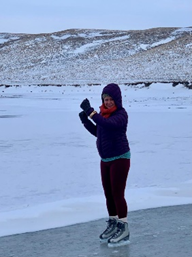
Carolyn is excited to be a member of this year’s CTRA Conference Planning Committee. Working as a recreation therapist for the last 16 years, Carolyn is a dedicated life-long learner and enjoys thinking outside the box. She has a strong commitment to breaking down barriers and developing therapeutic recreation services that change lives and address person-centered leisure needs. When she is not working, her interests include swimming, quilting, gardening, and home decorating.
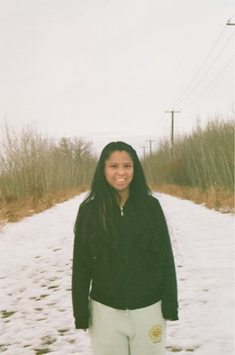
Lucienne is currently an Instructor at the Olson Centre for Health Simulation of NorQuest College where she was previously the Instructional Assistant of the Therapeutic Recreation program. Lucienne has experience working in various settings including long term care, day program, community outpatient as well as transitional care and is currently a CTRS. Lucienne enjoys trying new restaurants, attending community events, adventuring and thrifting. She is a spontaneous creative as well as a music and dance enthusiast. As the child of an immigrant parent from the Philippines, deconstruction and decolonization are areas of special interest to Lucienne and she strives to continue applying this lens in her personal and professional journey.
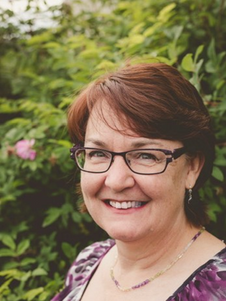
Margaret Ushko is currently working with CapitalCare in Edmonton. After raising a family, she completed a Therapeutic Recreation Diploma from Lethbridge College. She has worked in a variety of therapeutic recreation setting including long term Care, acute care, supportive living, dementia care and private practice. She is a member of ATRA, CTRA and became a CTRS certified in 2020. She has severed on the north Chapter ATRA board and is now assisting on the CTRA 2023 conference planning committee.
She is passionate about the value and benefits of therapeutic recreation for everyone. Staying both active and creative are values that are personally important. Some of the leisure pursuits that She enjoys, include swimming, gardening, sewing, painting, music, hiking and spending time with her family.
Other Donors:
See links for more information on these donors!
Sun Moon Creations 📷 @sunmoon.creations
Cookie House YEG 📷 @the.cookie.house.yeg
Desperately Seeking Hot Sauce
📷 @desperatelyseekinghotsauce
Cosea 📷 @madebycosea
Yarn Barn Crochet 📷 @yarnbarncrochet
Fundamentals Online
Simply Lovely by Shelly
Yazmin Juarez (Artist)
CDCP Dementia Designation Program
Ellen Helgason
Kaitlin Adams
